Agriculture & Environment
CAES Mentorship Programme to Enhance Capacity of Young Scientists in Agricultural Policy Processes
Published
3 years agoon
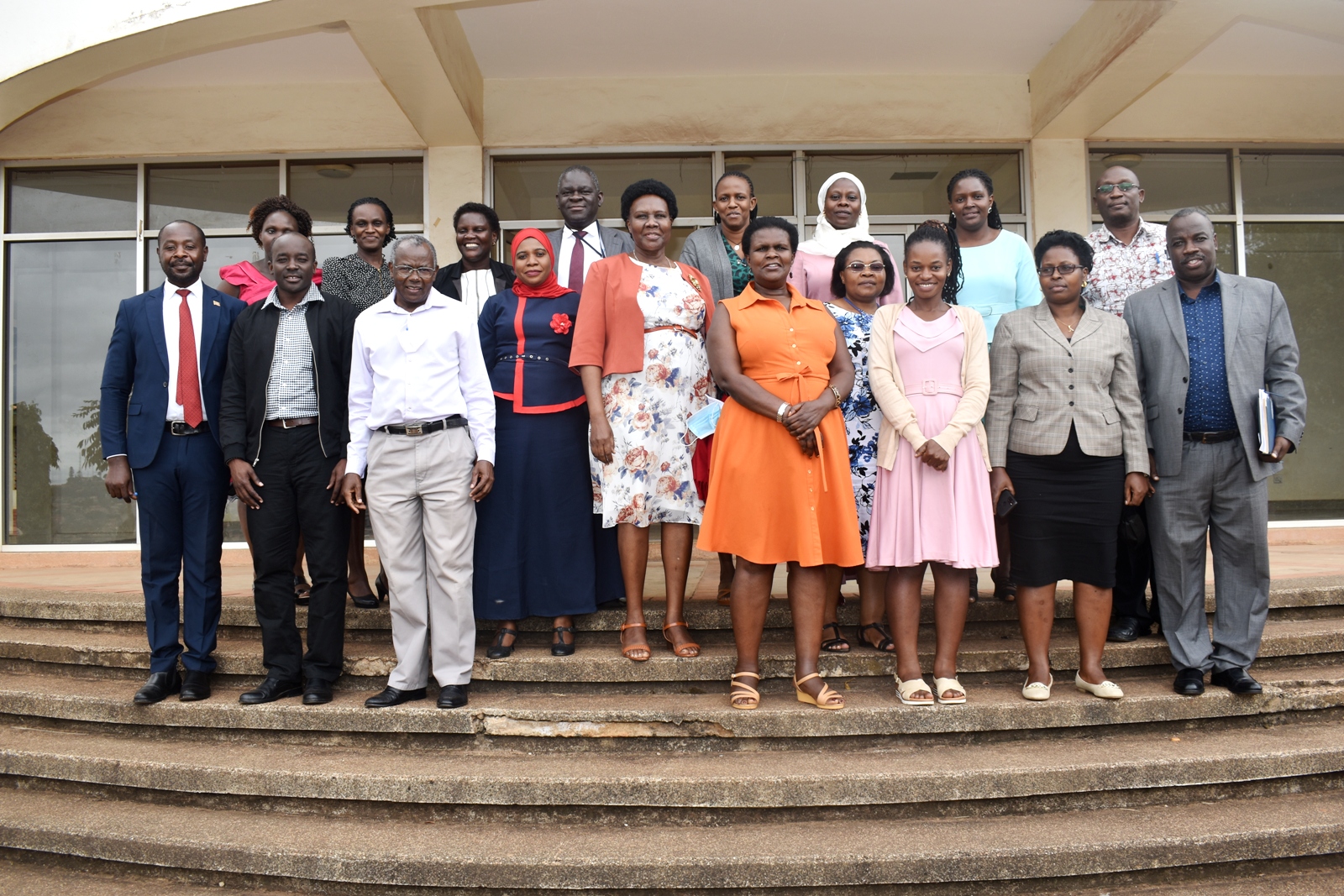
The programme titled, “Enhancing the Capacity of Young Scientists to Engage in Agricultural and Food Security Policy Processes in East Africa” seeks to improve connection between science, policy and practice
Funder: Swedish University of Agricultural Sciences
Overview
Agriculture is a key economic sector in the East African Region and it is an important source of livelihood for households and communities, especially in rural areas. Efforts to achieve food security and desirable nutrition outcomes, as well as spur economic growth largely revolve around the agricultural and environmental sectors. The role of these two sectors in achieving the first and second Sustainable Development Goals (SDGs) that focus on ending poverty and hunger respectively has been recognised in many continental, regional and national agricultural initiatives. Yet identifying and implementing enabling policies and evaluating their impact remains a challenge to the development and protection of the two sectors in most African countries. Africa’s continental framework for promotion of agricultural transformation, the Comprehensive Africa Agriculture Development Programme (CAADP), recognizes and emphasizes the need to strengthen capabilities and the policy and institutional environment required to trigger agricultural transformation while protecting the environment. The process includes interventions to strengthen the capacity for evidence-based planning, implementation and review, and to increase the capacity to generate, analyse and use relevant information and innovations.
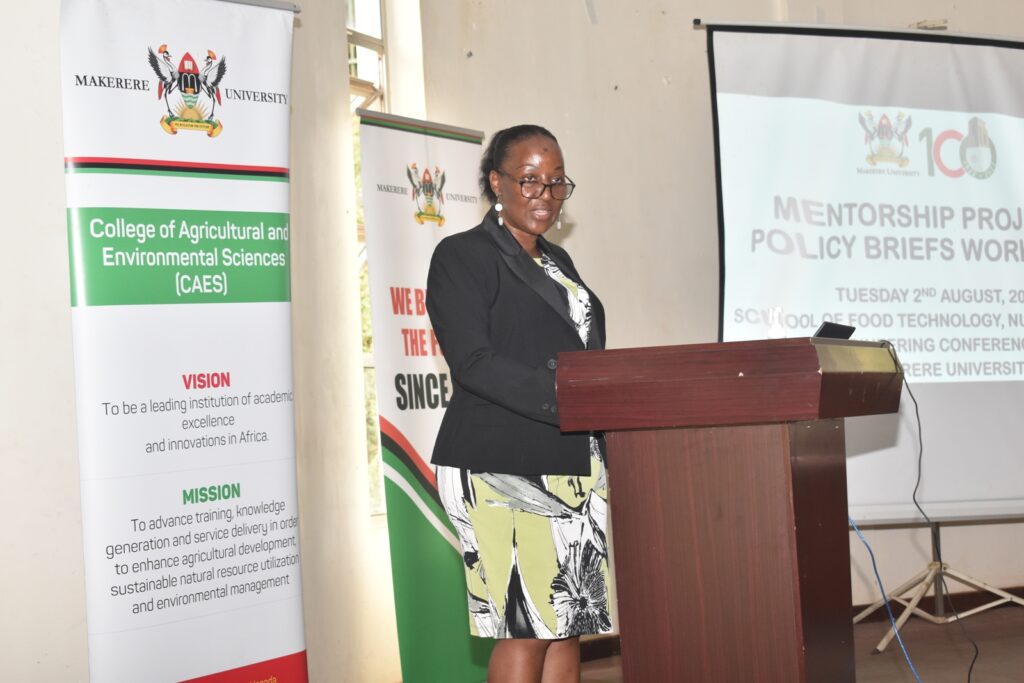
About the project
Through a project titled“Enhancing the Capacity of Young Scientists to Engage in Agricultural and Food Security Policy Processes in East Africa”, the Department of Agribusiness and Natural Resource Economics, College of Agricultural and environmental Sciences (CAES), Makerere University together with Kyambogo University, Busitema University, and the Department of Agricultural Economics at the University of Nairobi have mentored 13 PhD graduates – 8 in Uganda and 5 in Kenya. Supported by the Swedish University of Agricultural Sciences under the leadership of Prof. Bernard Bashaasha, the project aims to increase the capacity of scientists to synthesize, analyse and communicate science with different stakeholders; increase use of science-based knowledge in policies & practice; and improve connection between science, policy and practice. The mentees include; Dr Florence Lwiza from the Department of Agribusiness and Natural Resource Economics, CAES; Dr Betty Christine Nagawa from the Department of Forestry, Bio-Diversity and Tourism, CAES; Dr Kanifa Kamatara from the Department of Agricultural Production, CAES; Dr Catherine Ndagire from the Department of Food Technology and Nutrition, CAES; and Dr Kellen Aganyira from the College of Education and External Studies, Makerere University. Others are Dr Margaret Namugwanya Misinde; and Dr Judith Nagasha from Kyambogo University. The mentors include; Prof. Bernard Bashaasha from Makerere University; Dr Peter Opio from Busitema University and Dr Faith Muyonga from Kyambogo University.
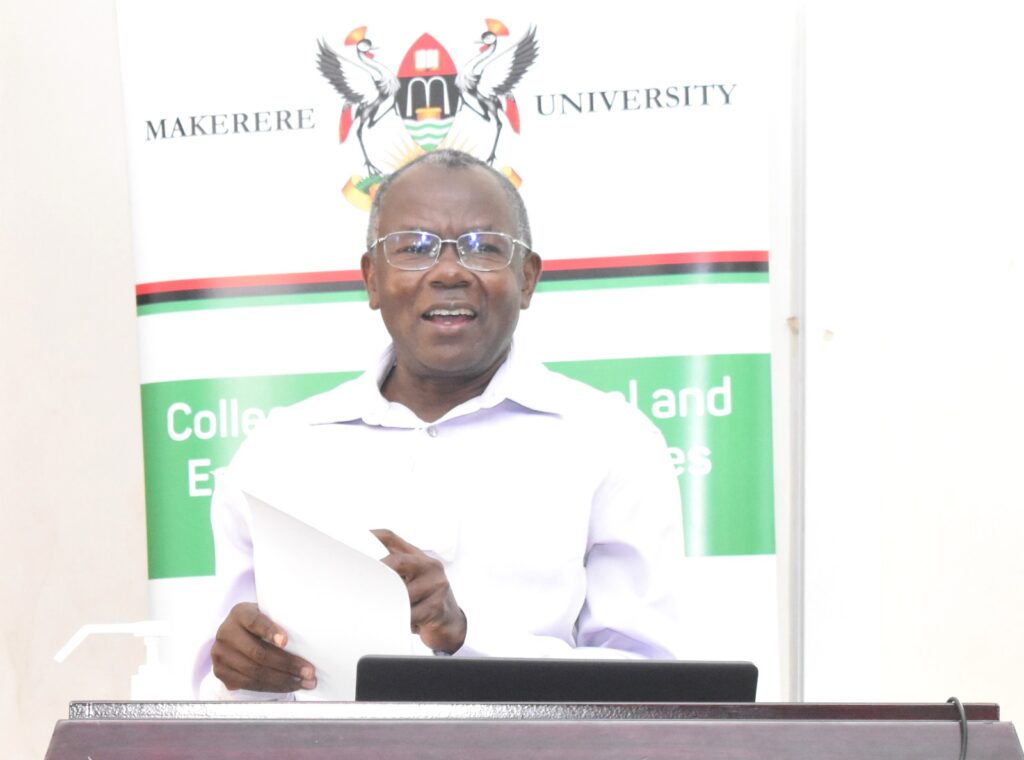
Policy workshop held at Makerere University
On 2nd August 2022, the project partners held a workshop at Makerere University to discuss and receive feedback from policy analysts on 7 policy briefs developed by the mentees. In the policy briefs, the mentees made a number of recommendations in relation to building resilience to extreme weather changes through index-agricultural insurance,the use of eucalyptus essential oils as an alternative to the commonly used synthetic pesticides in preservation of stored grains, quality-based classification scheme for beef carcasses as an incentive for beef cattle producers, conservation farming as a strategic solution to climate change challenges, the use of farmyard manure as a potential booster of macro and micronutrients in crops, building women’s capacity in value addition in a bid to increase their incomes, and the need to support school children and adolescents in Kampala to meet sedentary behaviour and physical activity guidelines.
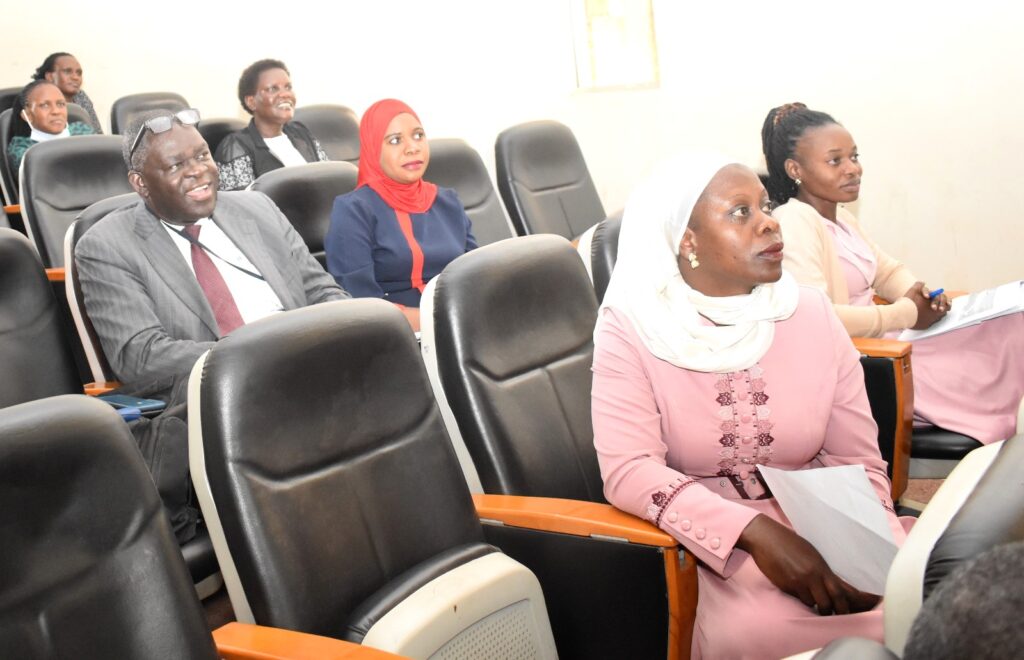
Policy recommendations by the Mentees
- Building resilience to extreme weather changes through index-based agricultural insurance
In her research, Dr Florence Lwiza from the Department of Agribusiness and Natural Resource Economics, CAES notes that despite efforts by the Government of Uganda to promote Index-based Insurance which has potential to mitigate weather-induced effects, uptake of agricultural insurance among smallholder farmers remains low. To increase uptake,the researcher recommends,i) increase in financial literacy to enable farmers to better understand the value of agricultural insurance, ii) expansion of investments in high-quality agro-meteorological data- data crucial for informing investment decisions, iii) gender considerations- encouragement of women and youth participation in agricultural insurance markets, iv) increased access to information on changes in farmer behaviour, v) flexible design of contracts- promoters should consider the heterogeneity in farmer characteristics, risk exposure and risk preferences and therefore design contracts to suit their specific resources, needs and characteristics.
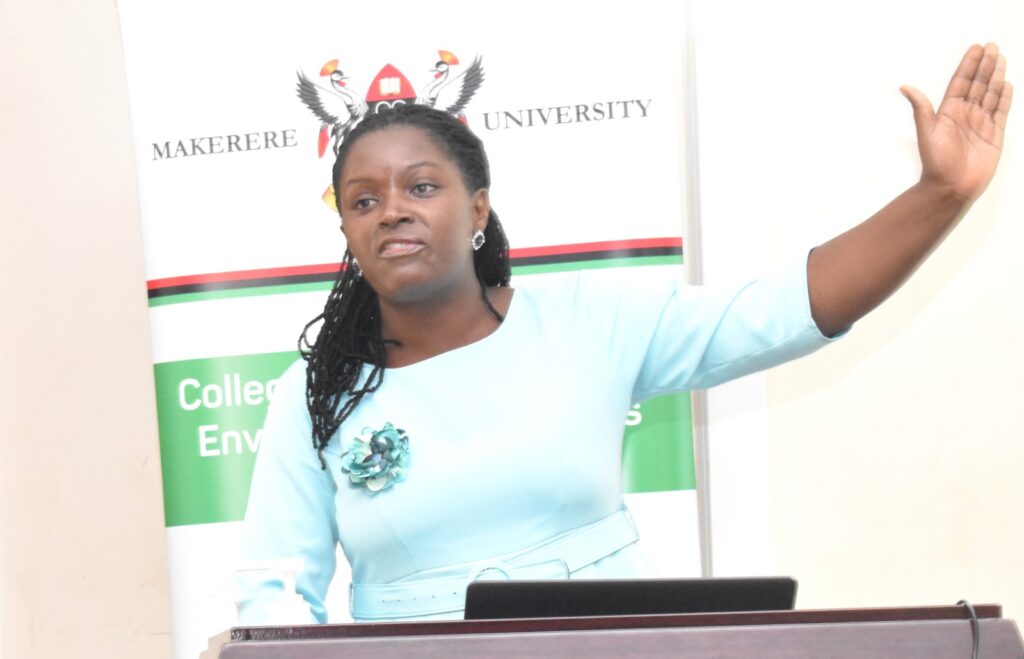
- The use of eucalyptus essential oils as an alternative to the commonly used synthetic pesticides in preservation of stored grains
According to Dr Betty Christine Nagawa from the Department of Forestry, Bio-Diversity and Tourism, CAES post-harvest handling and storage remains a challenge in Uganda. Shortage of standard and modern storage facilities reduces the shelf life of agricultural produce hence posing threats of food insecurity. Many farmers resort to pesticides to preserve their produce. However, the use of pesticides poses risks of chronic illnesses such as cancer. In a bid to minimise the use of pesticides, Dr Nagawa recommends the use of eucalyptus essential oils as a strategy to reduce on pest infestation in stored grain. This, she notes, requires conservation of eucalyptus trees species capable of obtaining oil at individual, community and district levels, and the establishment of cottage industries to support distillation of eucalyptus oil.
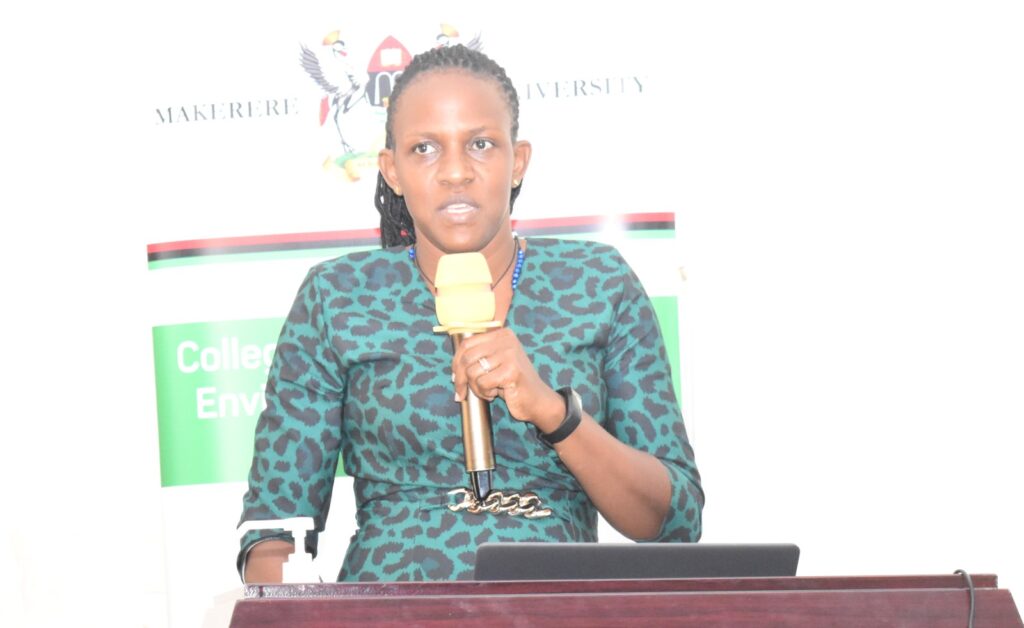
- Quality-based classification scheme for beef carcasses as an incentive for beef cattle producers
In its current form, the grading scheme offers no incentive to producers since carcasses are priced based on weights rather than on distinctively
differentiated quality classes. Dr Kanifa Kamatara from the Department of Agricultural Production, CAES calls for mandatory grading of carcasses at all slaughter houses just like inspection. She also recommends revision in the current classification scheme – attributes such as primal cut yield prediction and tenderness should be included to the classification criteria. She calls for adoption of objective classification technologies to improve accuracy.
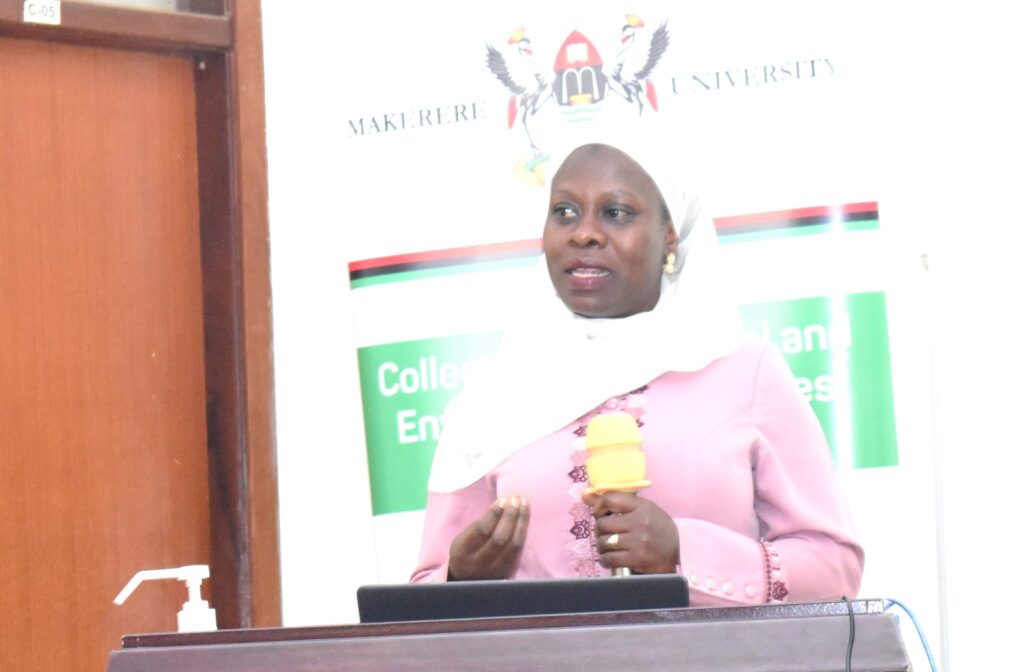
- Empower Farmers to Gain from Conservation Farming
As farmers grapple with land shortage and climate change challenges, conservation farming offers the opportunity to increase food production and food security. In her policy brief, Dr Kellen Aganyira recommends empowerment of farmers through extension services, affordable farm inputs, vermin control and access to competitive market. According to her research, farmers do not practice conservation farming due to the high cost of inputs, lack of market for their produce, and uncontrolled vermin that destroy crops. She also calls on the Ministry of Agriculture, Animal Industry and Fisheries (MAAIF) in collaboration with the private sector to support farmers with subsidized farm inputs. She implores the government through the Ministry of Trade, Industry and Cooperatives to link farmers to competitive markets, and to strengthen vermin control systems.
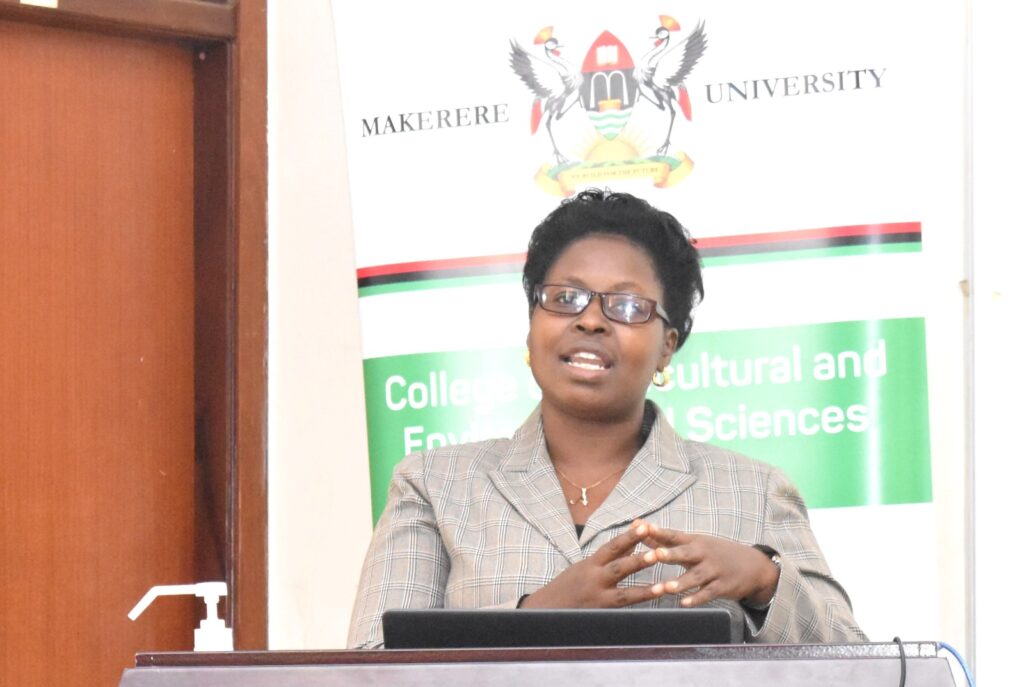
- Pig Manure, a Promising Option for Improving the Nutritional Value of Beans
Nutrient deficiency remains a serious public health threat as many households in low developing countries may not be in position to regularly afford foods rich in protein and micronutrients. Three-quarters of children 6-59 months old and 50% of women of reproductive age have severe micronutrient deficiency, resulting into impaired mental development and deaths. Due to high nutritional content (proteins, vitamins and micronutrients – zinc and iron), beans can play a big role in food and nutrition security for the poor. According to Dr Margaret Namugwanya Misinde from Kyambogo University, the nutrient content in bean seeds can be improved by combining farm yard pig manure with manufactured phosphorus fertilizers such as triple supper phosphate. The use of pig manure in combination with super phosphate for bean production is a sustainable strategy to improve protein and micronutrient intake for poor households, which cannot afford diversified diets. Farmers should therefore be sensitized and supported to adopt the practice.
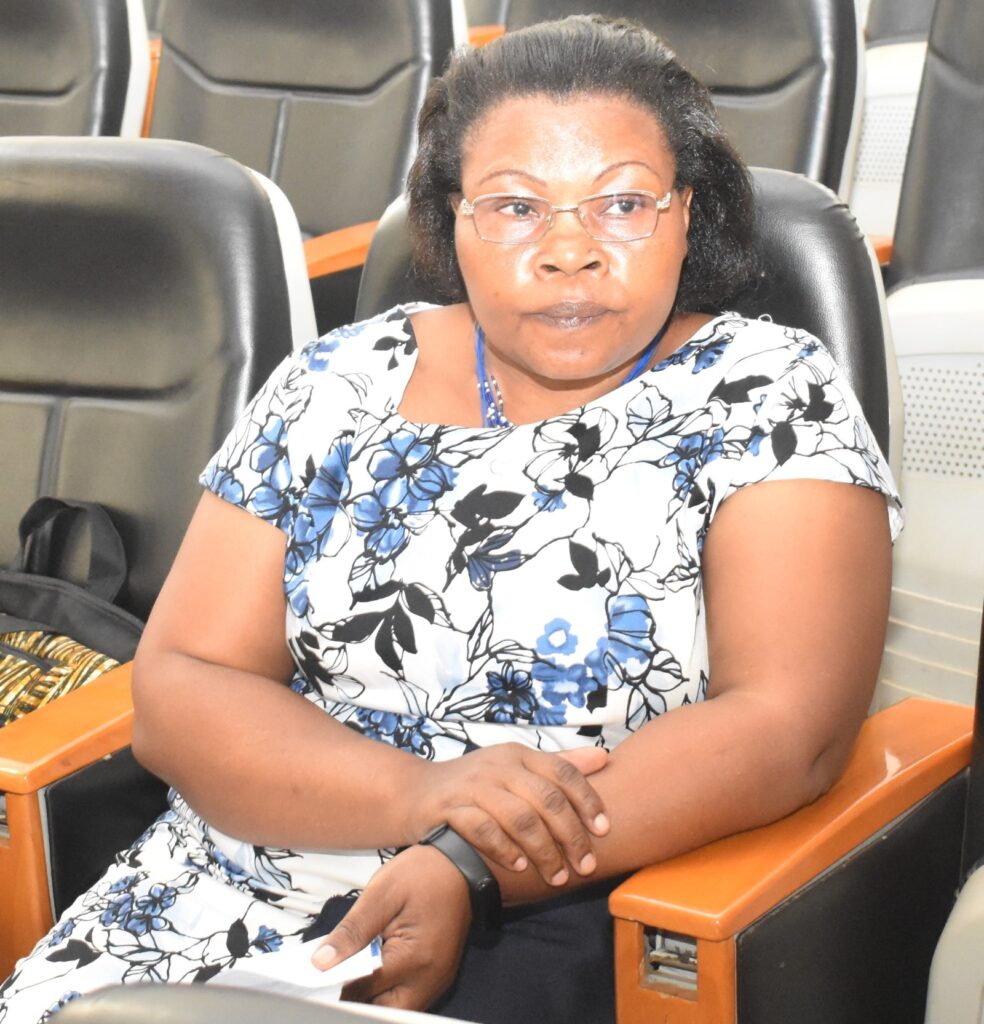
- Sedentary behaviour and physical activity guidelines
According to research conducted by Dr Catherine Ndagire from the Department of Food Technology and Nutrition, Makerere University, a small proportion of school children and adolescents meet sedentary behaviour and physical activity guidelines.
46% of school children and adolescents spent excessive time in sedentary behaviours. To reverse this, Dr Ndagire points to the need for schools to give students access to a wide range of activities. Schools need to design and renovate play grounds so that they can inspire play, movement and sports. The Ministry of Education and Sports should support a community-wide comprehensive physical activity campaign that provides education and opportunities directly to children and adolescents in schools.
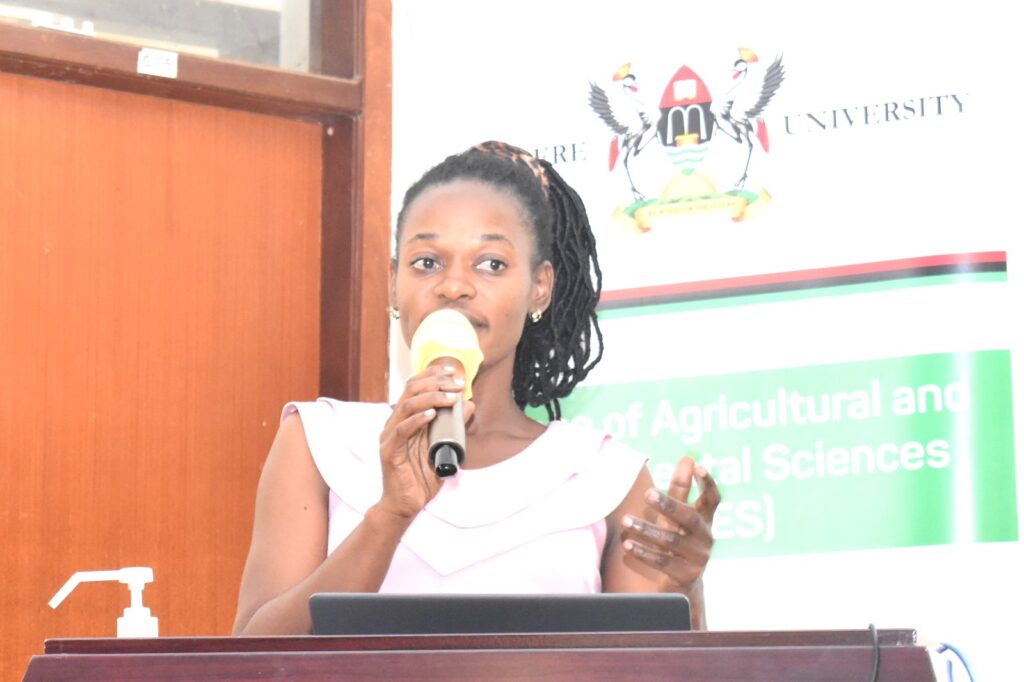
- Building women’s capacity on value addition for increased income
According to research conducted by Dr Judith Nagasha from Kyambogo University, women play a significant role in activities related to animal husbandry and dairy production. However, a lot of milk is wasted due to poor knowledge on safe production methods and appropriate storage facilities. Building their capacity on how to add value by refining the milk into products such as yogurt, butter, ghee, cheese and cosmetics that can be sold at a higher price can enhance their income.
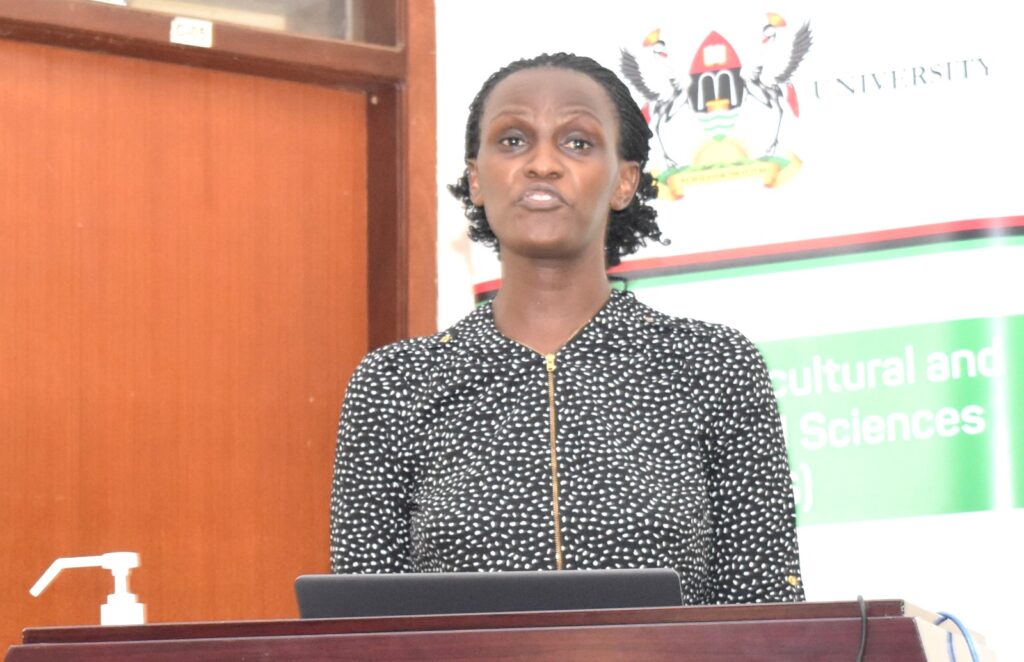
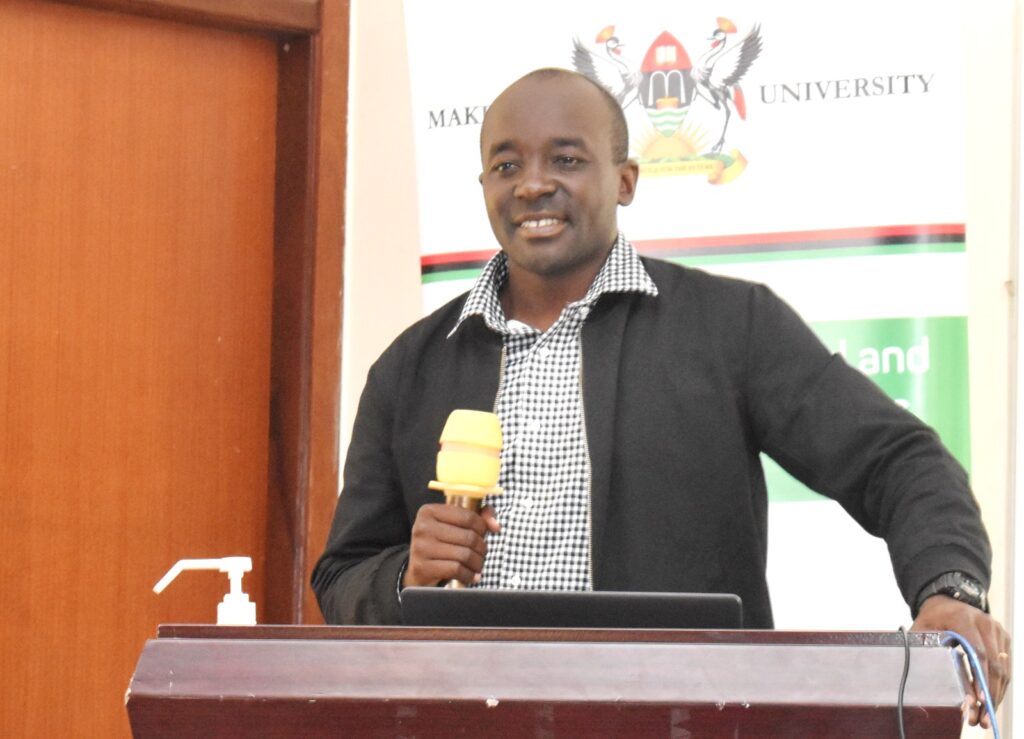
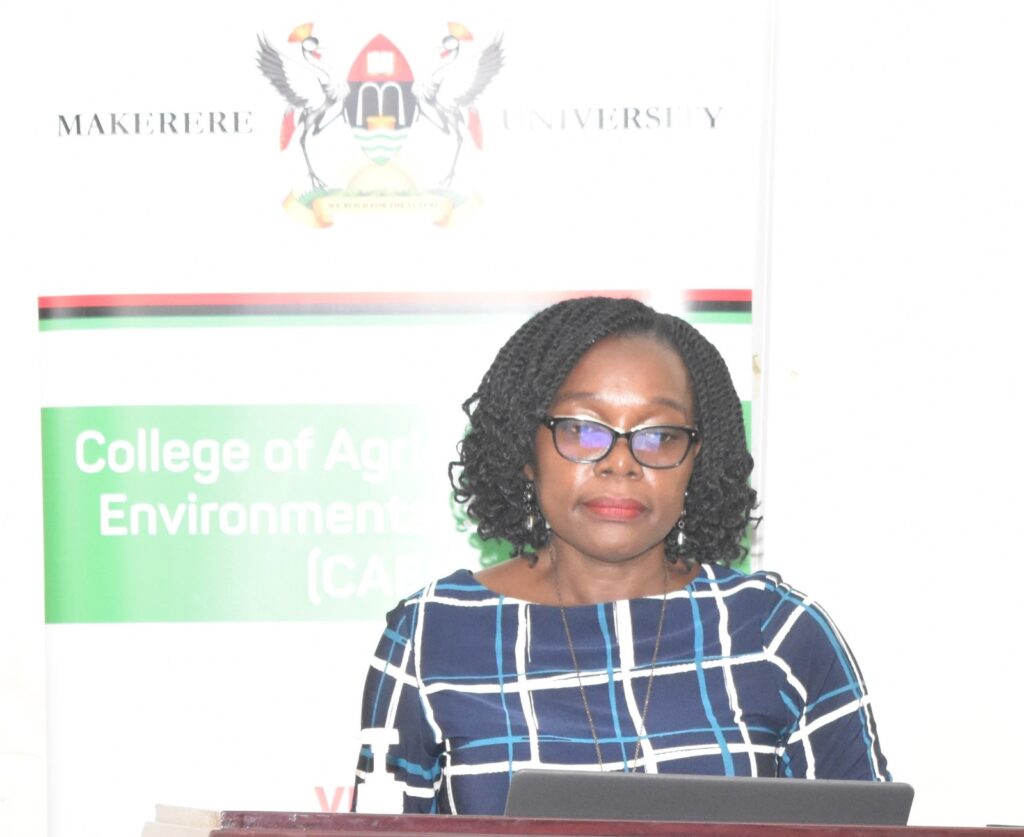
Feedback from Policy analysts
The event was graced by a number of policy analysts who provided enriching feedback on the briefs. These included officers from the Office of the President; Ministry of Finance, Planning and Economic Development; Ministry of Agriculture, Animal Industry and Fisheries; USAID; Water Resources Institute, and the Economic Policy Research Centre. The analysts cautioned policy developers to always avoid technical terms and to keep them precise, with recommendations that directly address community challenges. They also noted the importance of directly addressing the briefs to relevant bodies.
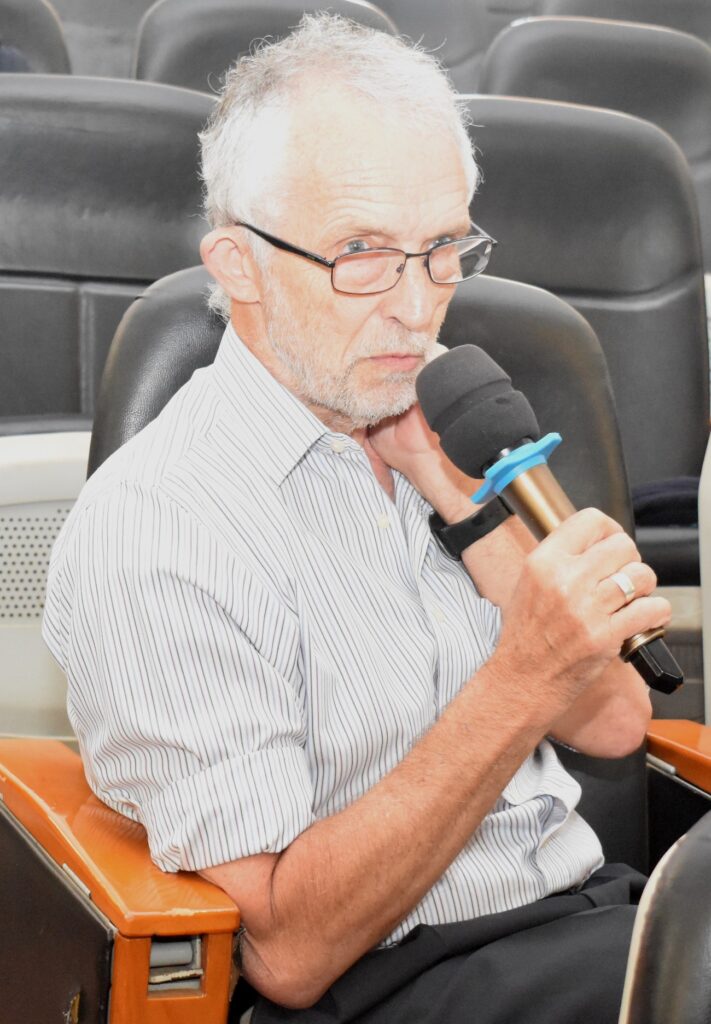
Principal’s remarks
In her remarks, the Principal, CAES, Prof. Gorettie Nabanoga applauded all partnering institutions for the timely initiative. “For Uganda, this initiative cements Makerere University’s role to support and mentor the new universities in the country.” Prof. Nabanoga acknowledged the efforts and commitment of the mentors to build a new cadre of policy influence ambassadors. She thanked the Swedish University of Agricultural Sciences for the funding and continued collaboration with Makerere University, and specifically CAES.
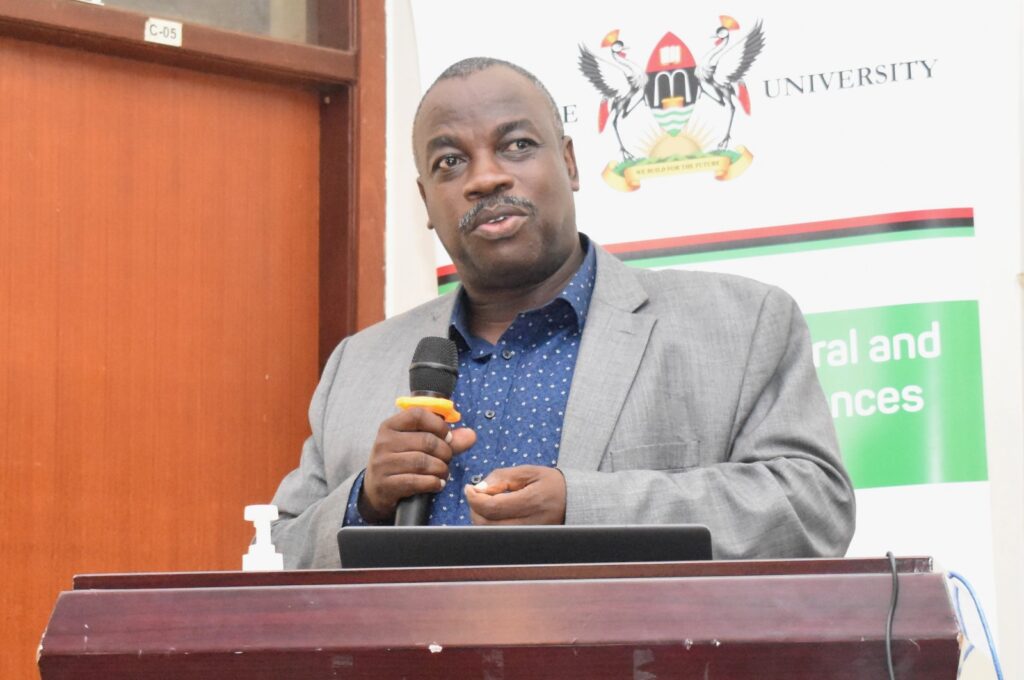
You may like
-


Simplicity, Service & Scholarship: Hallmarks of Professor Livingstone Luboobi’s Legacy
-


EfD-Mak Holds 2nd Advisory Board Meeting: Charts Path for Growth
-


Celebrating the Life of Prof. Livingstone Sserwadda Luboobi
-
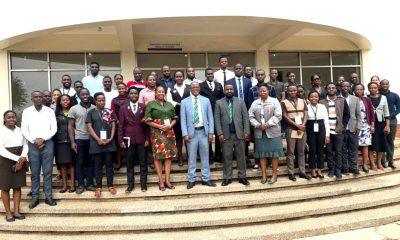

Mak Moves to Revitalize Food Technology & Business Incubation Centre to Drive Innovation & Entrepreneurship
-
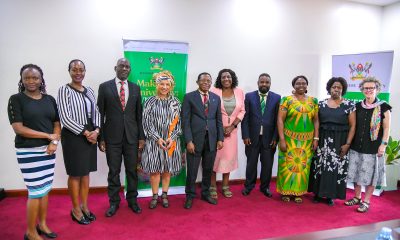

Mak, HERS-EA Discuss Nurturing More Women Leaders
-
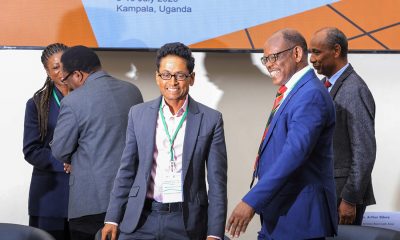

Makerere Hailed for Its Leadership in Health Policy and Knowledge Systems
Agriculture & Environment
Mak Moves to Revitalize Food Technology & Business Incubation Centre to Drive Innovation & Entrepreneurship
Published
5 days agoon
July 14, 2025By
Mak Editor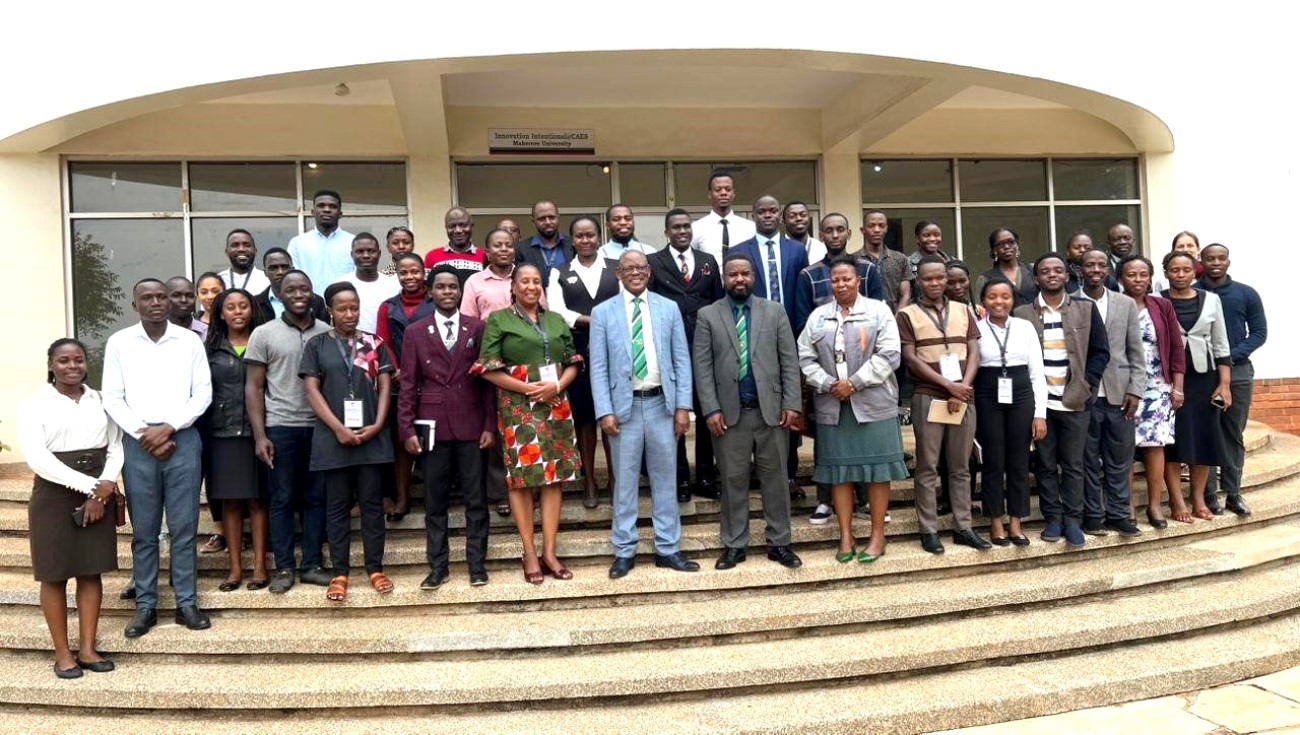
By Ssembogga Derrick
Makerere University marked a significant milestone on Thursday, 10th July 2025, with the launch of the revitalization programme for the Food Technology and Business Incubation Centre (FTBIC). This initiative is poised to position the FTBIC as a national hub for food innovation, student enterprise development, and agro-industrial transformation.
Hosted under the School of Food Technology, Nutrition and Bioengineering (SFTNB) at the College of the Agricultural and Environmental Sciences (CAES), the revitalization of the FTBIC is intended to bridge the gap between academia and industry. “We aim to achieve this by supporting food-based start-ups, enhancing graduate entrepreneurship, and promoting the commercialization of research,” Dr Julia Kigozi, Dean, SFTNB explained. The project receives critical funding from the Makerere University Research and Innovations Fund (MakRIF), which consistently supports innovation and research-based development at the university.
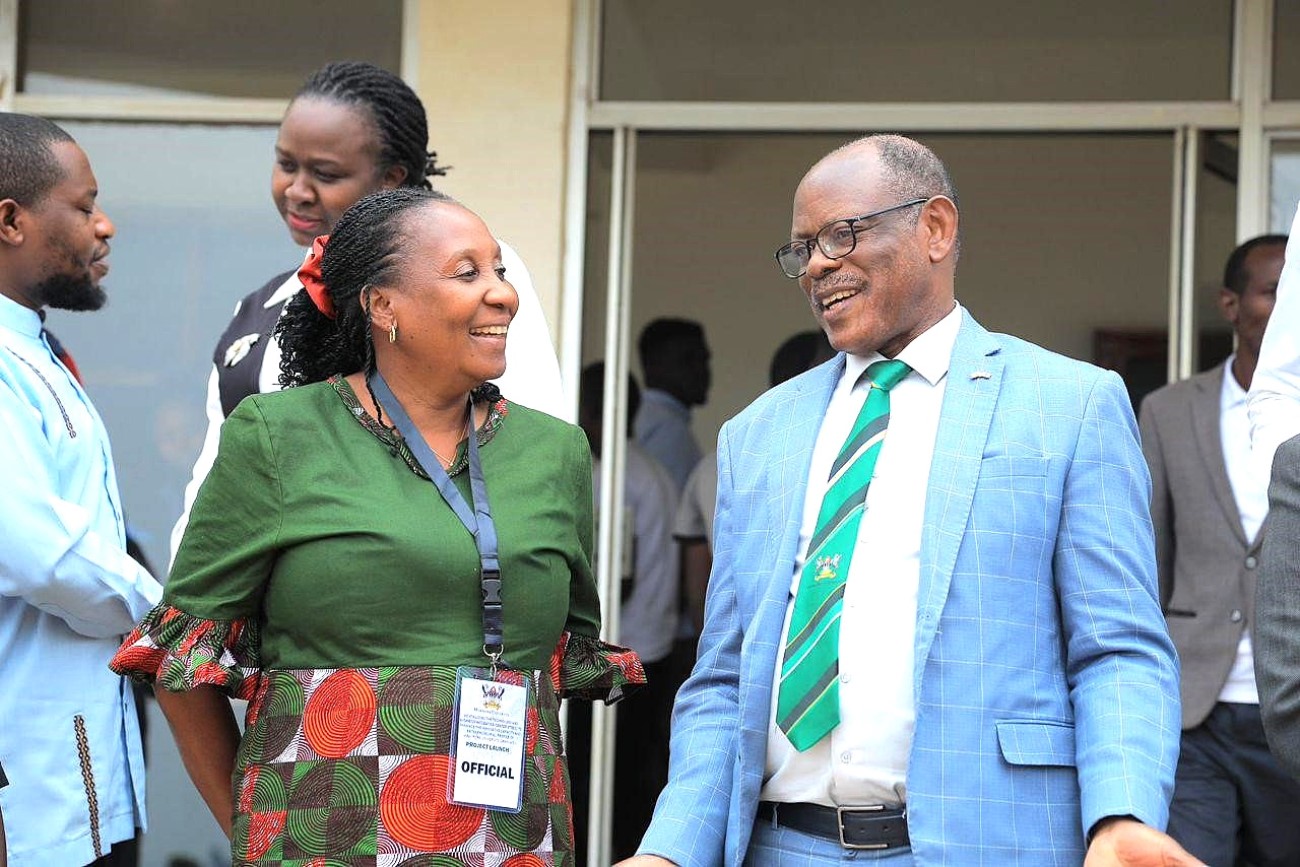
Unveiling a New Strategic Vision
The event, held under the theme “Revitalizing FTBIC to Unlock Innovation and Entrepreneurship Potential among Makerere University Graduates”, marked the official launch of the Centre’s revitalization programme to key stakeholders. It featured the presentation of FTBIC’s new strategic vision and direction, highlighting the commitment of the institution and its partners to fostering graduate entrepreneurship and innovation in food systems. The event also aimed to raise awareness of the Centre’s crucial role in supporting industry, research, and national development.
Participation of stakeholders
The launch attracted a vibrant and diverse audience of over 50 participants. Among the attendees were student representatives; partners from other incubation centers both within and outside Makerere University, including MIIC, UNIPOD, and DGI; as well as representatives from national innovation stakeholders such as Uganda Industrial Research Institute (UIRI) and StartHub Africa.
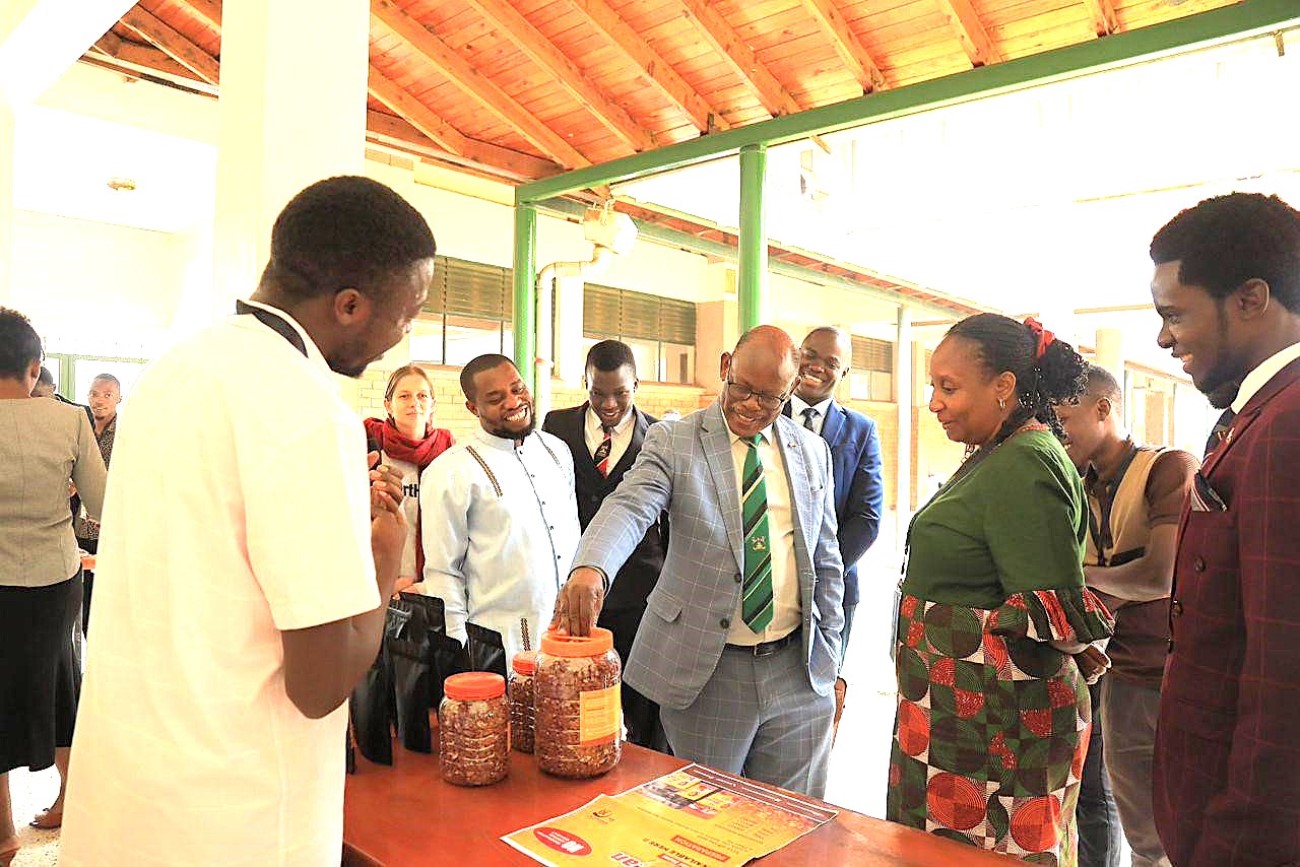
Most notably, the event was honored by the presence of the Vice Chancellor of Makerere University Prof. Barnabas Nawangwe. The Vice Chancellor commended the revitalization efforts, acknowledging the Centre’s immense potential to incubate hundreds of food-based start-ups and create employment opportunities for thousands of graduates. “The Centre is now well-positioned to become a flagship platform for innovation, employment creation, and agro-industrial development in Uganda and beyond. Makerere University remains committed to supporting such initiatives that align with national priorities and global development goals.”
The event featured the unveiling of the operational framework for the revitalized Centre, highlighting its commitment to innovation, entrepreneurship, and practical graduate training. Stakeholders in attendance expressed enthusiasm and pledged support for future collaboration, research, and product development initiatives aligned with national development priorities. The event also provided a platform to deepen partnerships with private sector actors and development organizations, reinforcing confidence in the Centre’s potential to serve as a national model for university-led incubation.
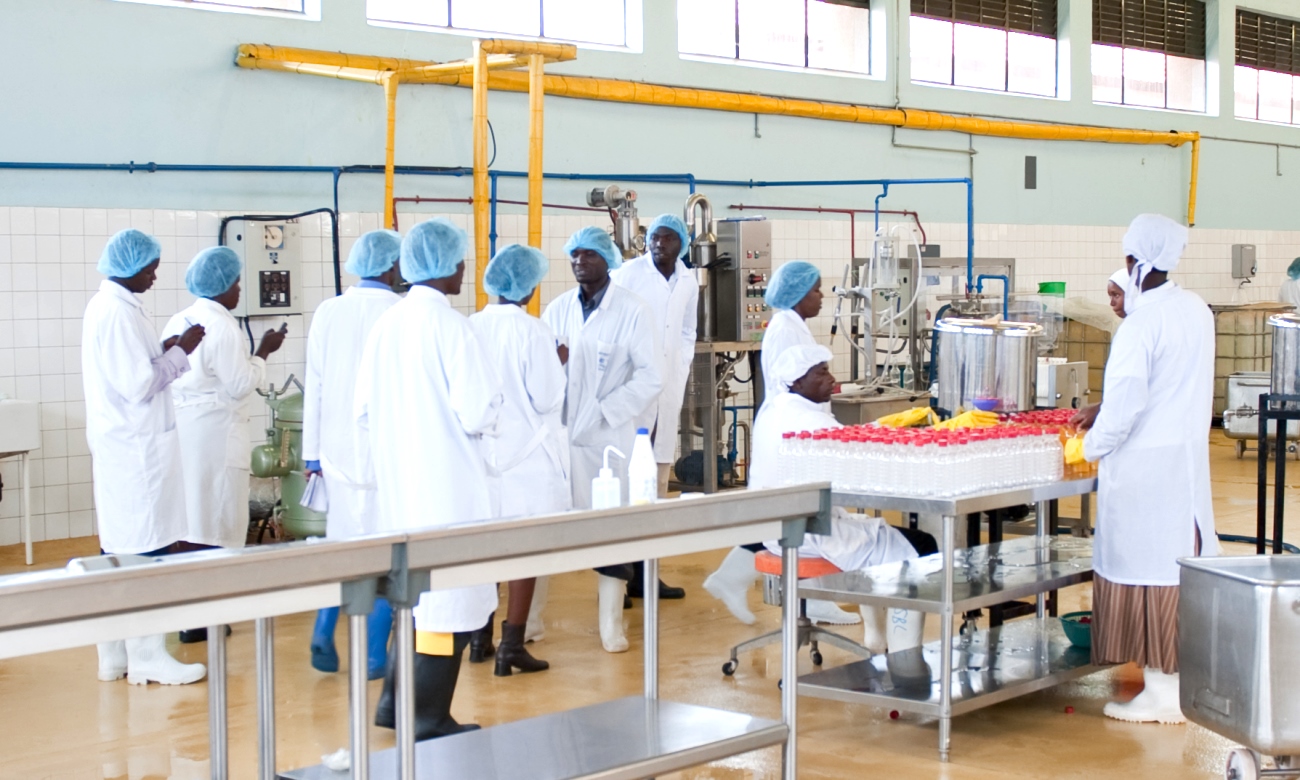
Agriculture & Environment
SophiA Project Upgrades Medical Infrastructure at Buvuma Health Centre IV, Trains Technicians for Maintenance Works
Published
1 week agoon
July 9, 2025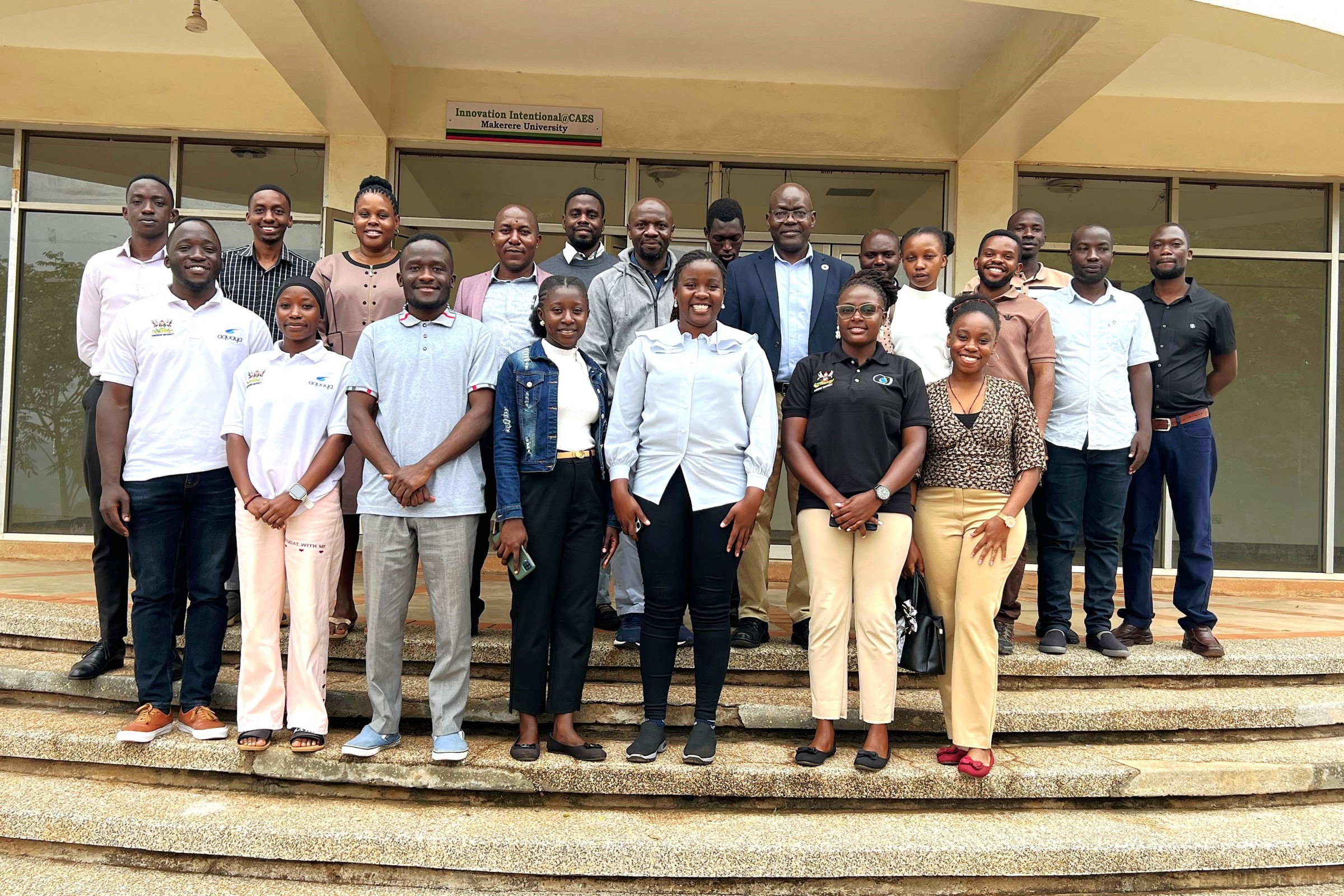
Overview of the Sustainable Off-Grid Solutions for Pharmacies and Hospitals in Africa (SophiA) Project
Despite ongoing urbanization across Africa, the majority of the population still resides in rural and remote areas, where infrastructure development remains limited. These regions face significant challenges such as lack of access to healthcare, education, clean water, and reliable electricity, contributing to higher rates of illness and poverty compared to urban centres. According to reports, Sub-Saharan Africa has approximately 120,000 public health facilities (22,000 hospitals and 98,000 health posts), of which around 26% lack any electricity access, and only 28% have reliable power supply.
Access to good healthcare is critical for sustainable development. However, many rural medical centres operate under harsh conditions – using polluted water, lacking cooling for medicines, and facing poor sanitation – largely due to unreliable electricity and water supply. Although half of the population in Sub-Saharan Africa lacks electricity, the region has abundant renewable energy potential that can be effectively harnessed through off-grid solar photovoltaic (PV) systems.
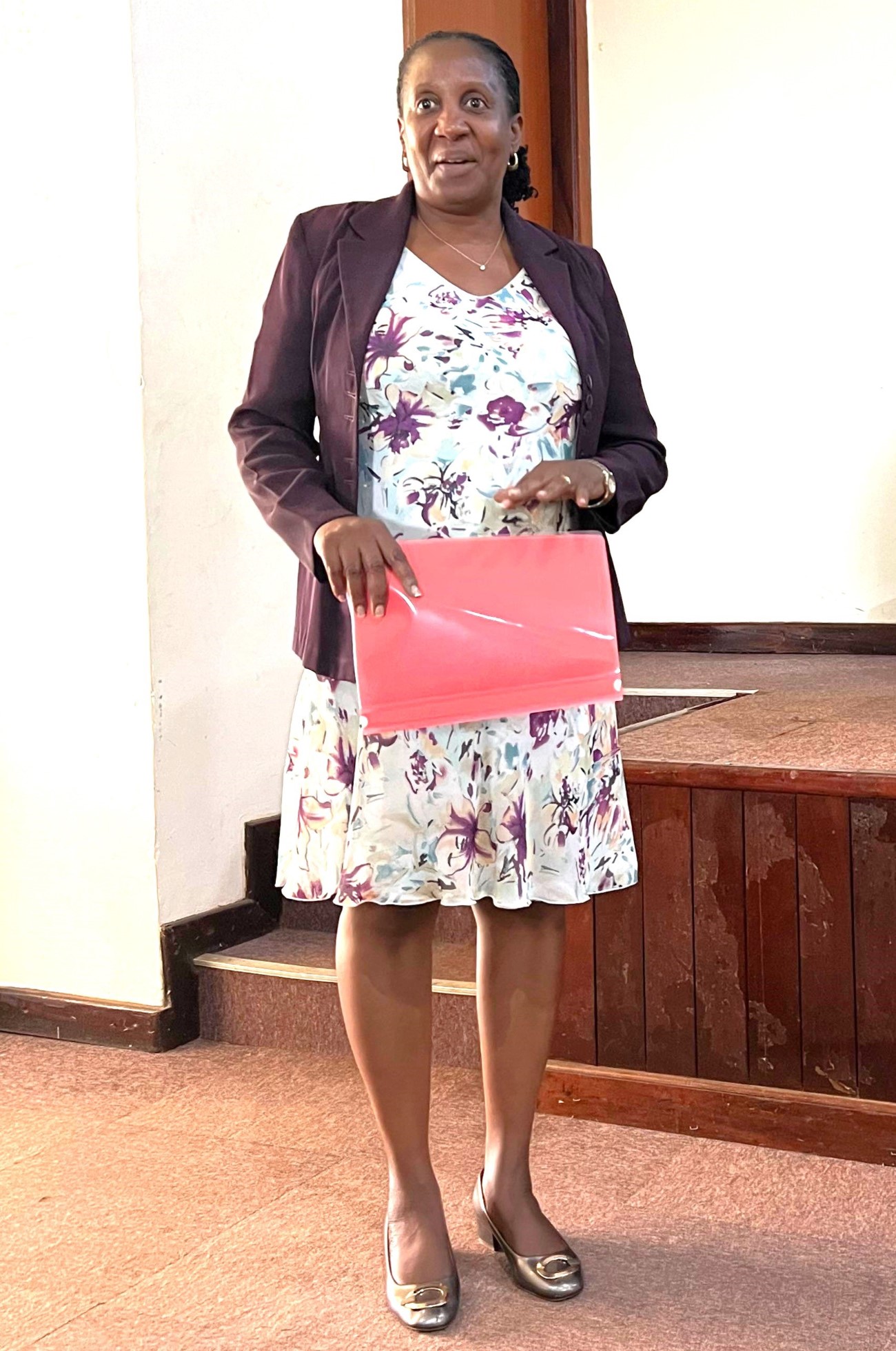
To address the above-mentioned challenges facing the African Continent, Makerere University in partnership with 13 organizations across Europe and Africa developed a project titled, “Sustainable Off-grid solutions for Pharmacies and Hospitals in Africa (SophiA)”. The five-year project that began on 1st October 2021 is funded by the European Union (Project: 101036836 – SophiA – H2020-LC-GD-2-3-2020). At Makerere University, the project is coordinated by Dr. Nicholas Kiggundu, Associate Professor in the Department of Agricultural and Biosystems Engineering, College of Agricultural and Environmental Sciences (CAES).
Piloted in Burkina Faso, Cameroon, Malawi, and Uganda, SophiA aims to provide sustainable off-grid energy solutions to rural and remote health facilities, fostering economic growth and ensuring equitable access to energy and healthcare. Using various technologies, such as photovoltaics, solar thermal, electrical and thermal storage, water treatment and natural refrigerants with low global warming potential, SophiA has developed and manufactured locally innovative, modular, affordable and efficient solar powered systems for providing:
- Safe and clean drinking water, free of bacteria and viruses, and deionised water for medical purposes;
- Hot water and steam production for thermal requirements of the hospitals;
- Cooling of medicines and food at +5°C;
- Low temperature storage of blood plasma and vaccines at -30°C;
- Ultra-low temperature storage of sensitive medication (e.g. some Covid-19 or Ebola vaccines) at -70°C.
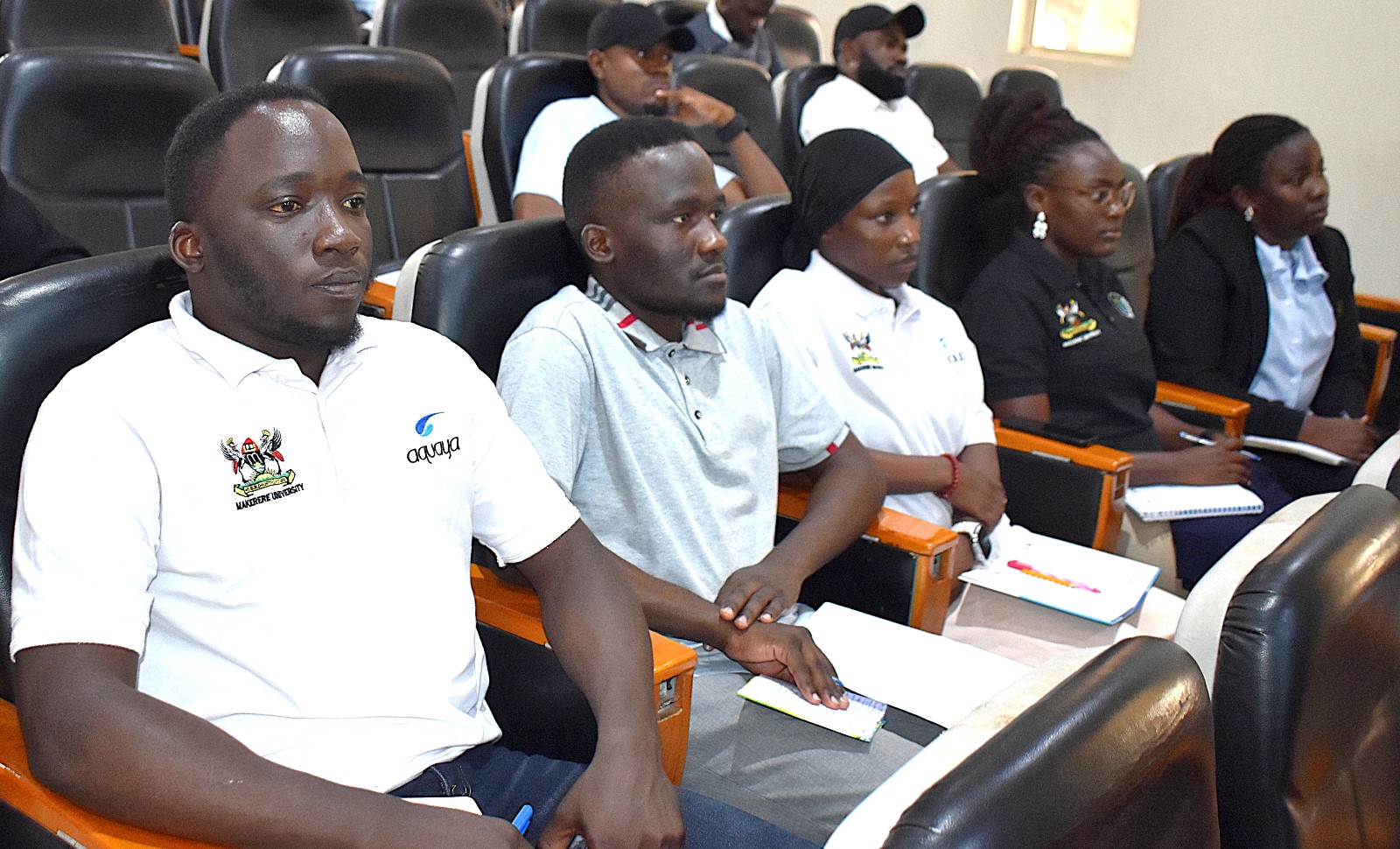
In addition, PV MedPort, a simple and 100% solar-powered solution has been developed and tested as a mobile health care station in small remote areas in 4 different geographical conditions in Africa. The SophiA system has been manufactured in Africa and will provide, for the first-time, innovative solutions based on climate-friendly natural refrigerants to cover cooling demand for three different temperature ranges (-70°C, -30°C and +5°C). The system has been tested and demonstrated at four rural hospitals in remote regions throughout the African continent covering the major geographical regions and different climatic conditions in Burkina Faso, Cameroon, Malawi and Uganda.
SophiA Project initiatives in Uganda
In Uganda, all Health Centre IV hospitals with surgical theatres have been connected to the national grid except Buvuma Health Centre IV, which serves over 120,000 people scattered across 52 islands. Recognizing this gap, the Ministry of Health selected Buvuma Health Centre IV for the SophiA project to demonstrate sustainable off-grid solutions.
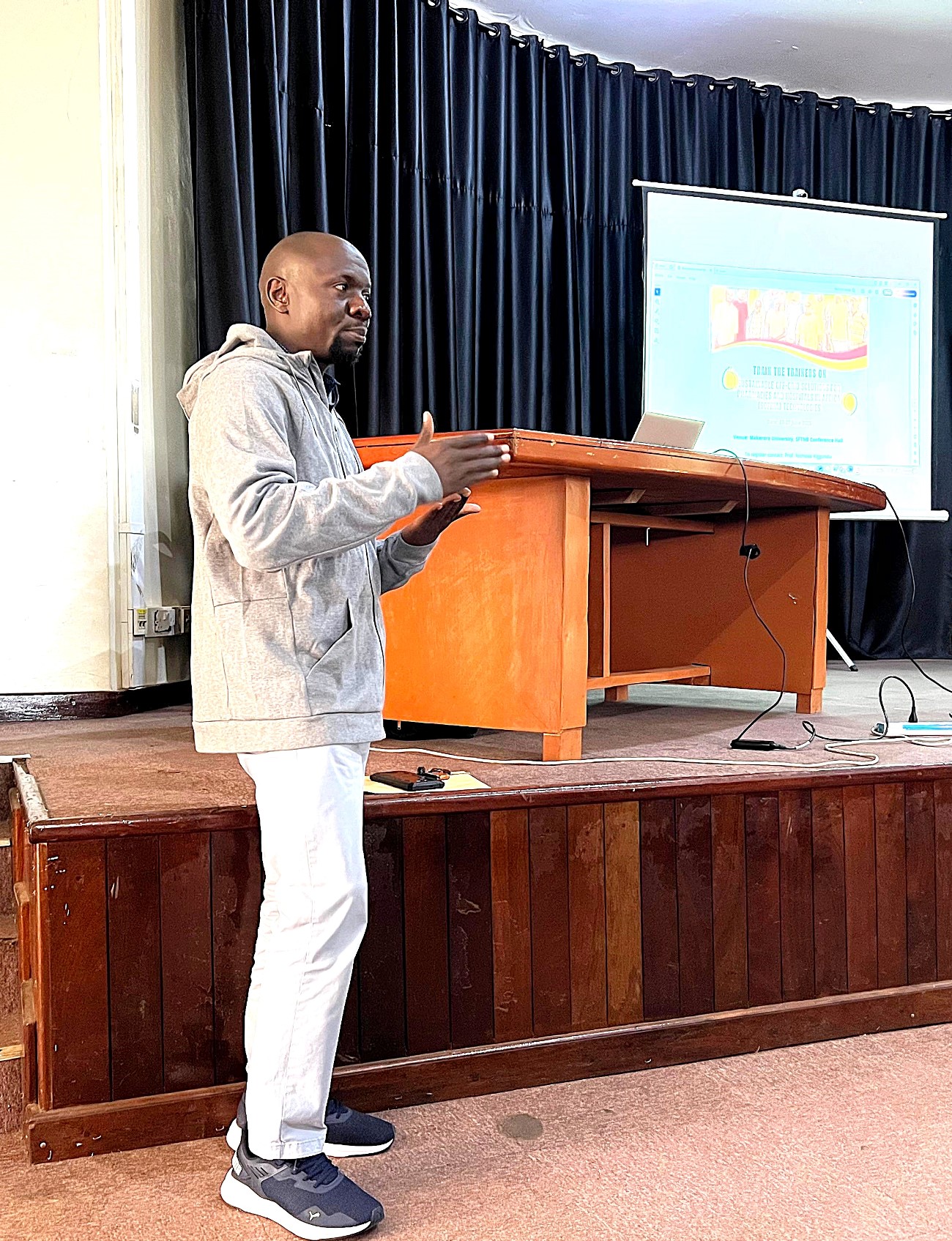
The SophiA System at Buvuma Health Centre IV provides the following services:
- Off-grid electricity supply
- Safe, clean drinking water for patients, staff, and the community
- Hot water and steam systems crucial for maternal care
- Solar-powered cooking and meal preparation
- Cooling systems for surgery and intensive care units
- Refrigeration for medicines at +5°C, blood plasma storage at -30°C, and ultra-low temperature storage (-70°C) for sensitive vaccines such as those for COVID-19 and Ebola
Training of Trainers Workshop
As the SophiA project approaches completion in September 2025, it is vital to establish a skilled pool of technicians capable of handling maintenance and minor repairs of the system components, including solar panels, water treatment units, generators, batteries, and cooking kits.
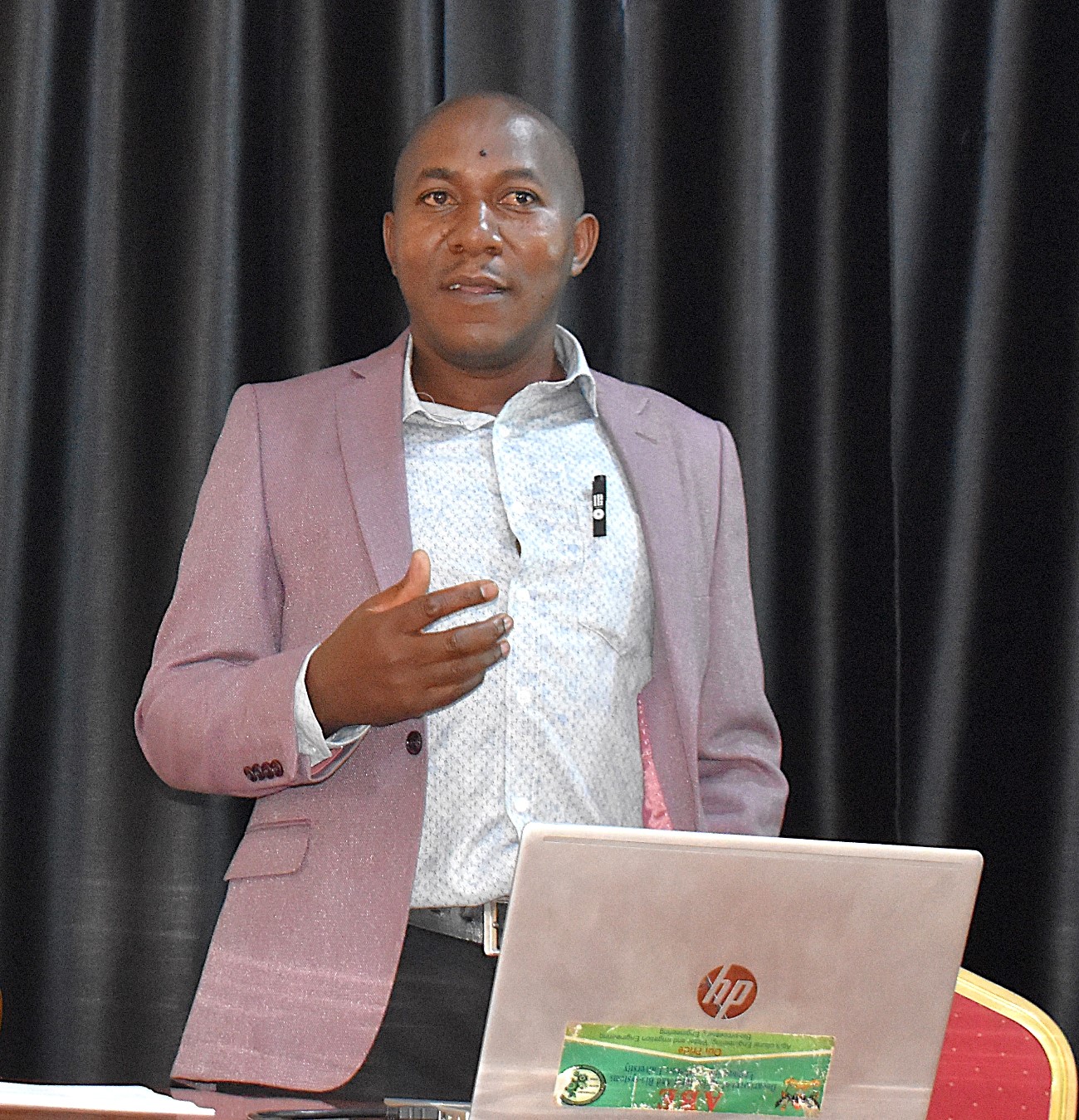
From June 23 to 27, 2025, Makerere University hosted a comprehensive Training of Trainers workshop. The training programme encompassed a diverse range of topics delivered by subject matter experts from institutions, including Makerere University (Department of Agricultural and Biosystems Engineering – CAES, and the College of Engineering, Design, Art and Technology – CEDAT), Hochschule University of Applied Sciences, and Busitema University. Participants were carefully selected from diverse professional backgrounds, including recent engineering graduates from CAES and CEDAT, Makerere University, University technical staff, personnel from Kyambogo University, officials from Buvuma District Works and Health Departments, and electricians from Kampala City. The training sessions were conducted at Makerere University and Buvuma Health Centre IV Hospital.
Training Modules Included:
- Sustainable energy systems and their practical applications
- Energy generation and storage technologies
- Solar water heating: design, operation, maintenance, and performance optimization of solar water heaters, crop dryers, and concentrating solar heaters
- Solar PV technologies in Uganda: cell technology, system design, operations, maintenance, and hands-on practicals for standalone and grid-connected systems
- Public health implications of water quality
- Water treatment and quality management, including protocols, parameters, and case study on the MCDI treatment system
- Water quality testing methodologies
- Introduction to sustainable refrigeration and cooling technologies
- Environmental impact and safety considerations for refrigerants
- Refrigeration cycles and component overview
- Life cycle assessment of SophiA technologies
- Thermal energy storage within the SophiA system
- Steam as a productive energy source
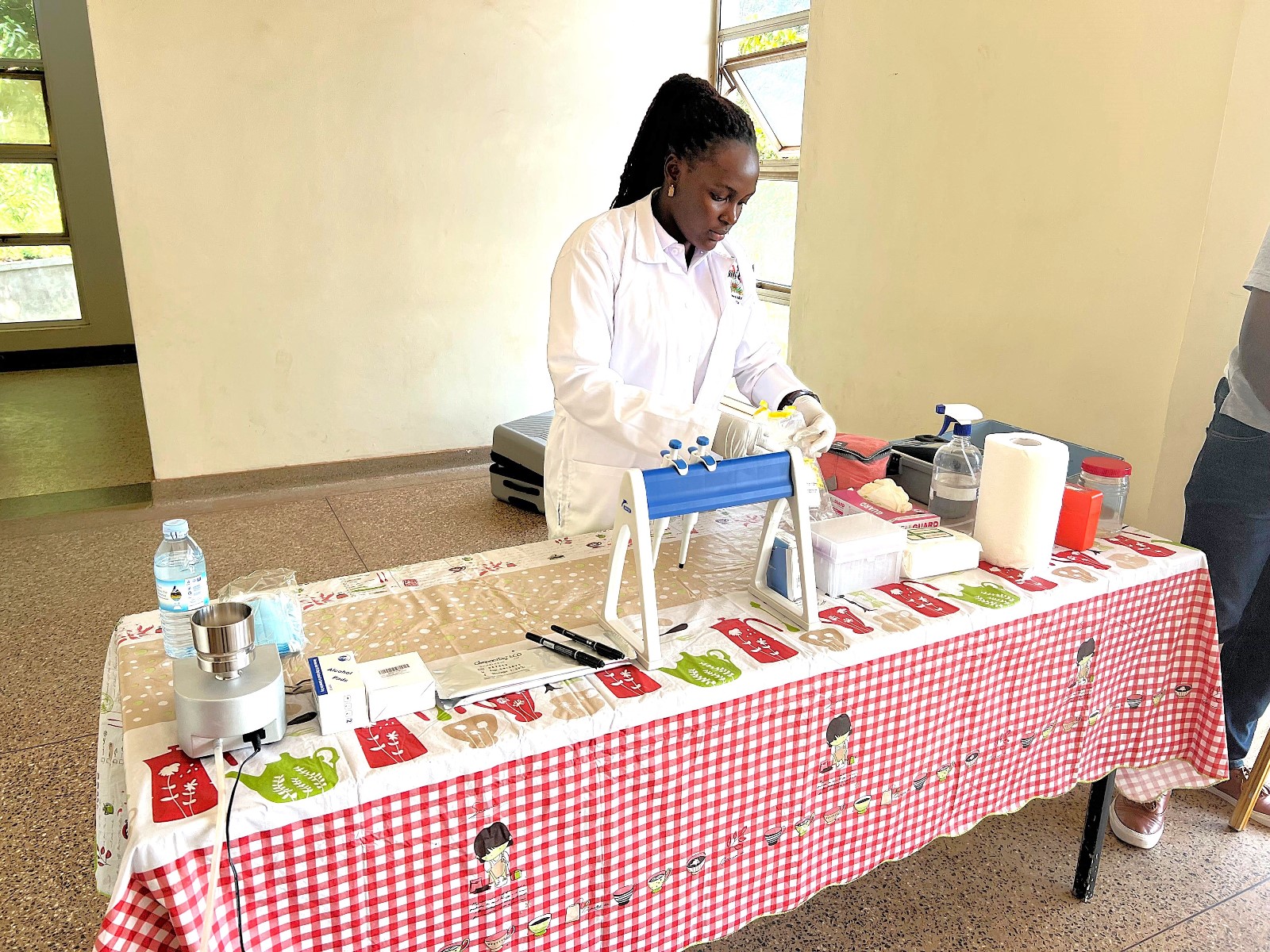
The Training Sessions
Day One: Introduction to foundational concepts in solar energy technologies
The first day of the SophiA Train the Trainers Workshop focused on building foundational knowledge in sustainable and solar energy systems. Led by Dr. Peter Tumutegyereize and Dr. Francis Mujjuni, participants explored a range of technologies and applications critical to clean energy deployment.
Key topics included:
Sustainable Energy Systems: Introduction to renewable energy systems including bioenergy, hydro, wind, geothermal, hydrogen fuel cells, and battery storage.
Solar Radiation & Geometry: Understanding solar constants, irradiance, and the impact of atmospheric conditions on solar performance.
Solar Thermal Technologies: Detailed look at solar water heating systems (FPCs and ETCs), maintenance, sizing, and solar dryers for agricultural and industrial use.
Photovoltaic (PV) Systems: Working principles, types of PV cells, performance factors, and diagnostics. Practical testing techniques and metrics like Voc, Isc, MPP, and PR were discussed.
Simulation & Application: Olivia Nakiwanuka demonstrated a PVsyst-based simulation of a 2.55 kWp standalone system for a conference hall, showing a high solar fraction (97.88%) and low LCOE (USD 0.03/kWh).
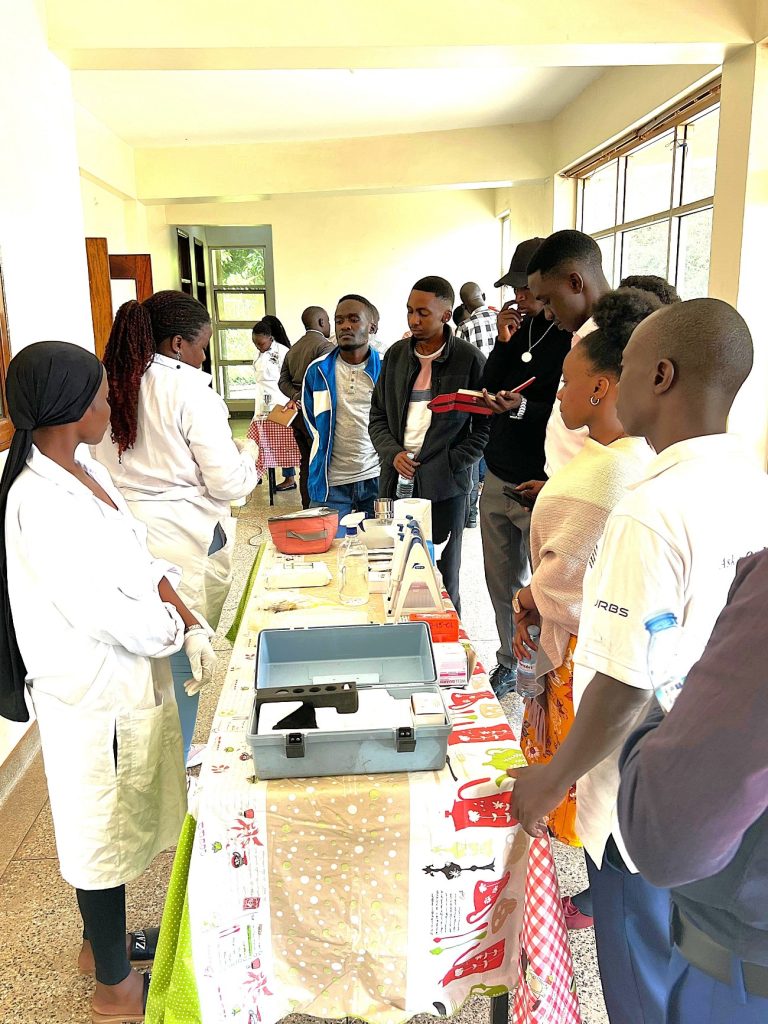
The sessions emphasized practical skills, performance analysis, and real-world application, equipping participants to train others and support solar adoption, especially in rural and off-grid settings.
Day Two: Water Treatment Technologies
The second day focused on water treatment technologies relevant to low-resource healthcare settings. Facilitated by Sneha De and Mr. Duc Dinh Ngoc from Hochschule Karlsruhe University, sessions covered technical, environmental, and operational challenges, with contributions from Dr. Joshua Wanyama on water quality management and Dr. Prossie Nakawuka on practical water testing.
Key challenges addressed included unreliable water supply and contamination in healthcare facilities, emphasizing the need for decentralized water treatment, especially in rural areas.
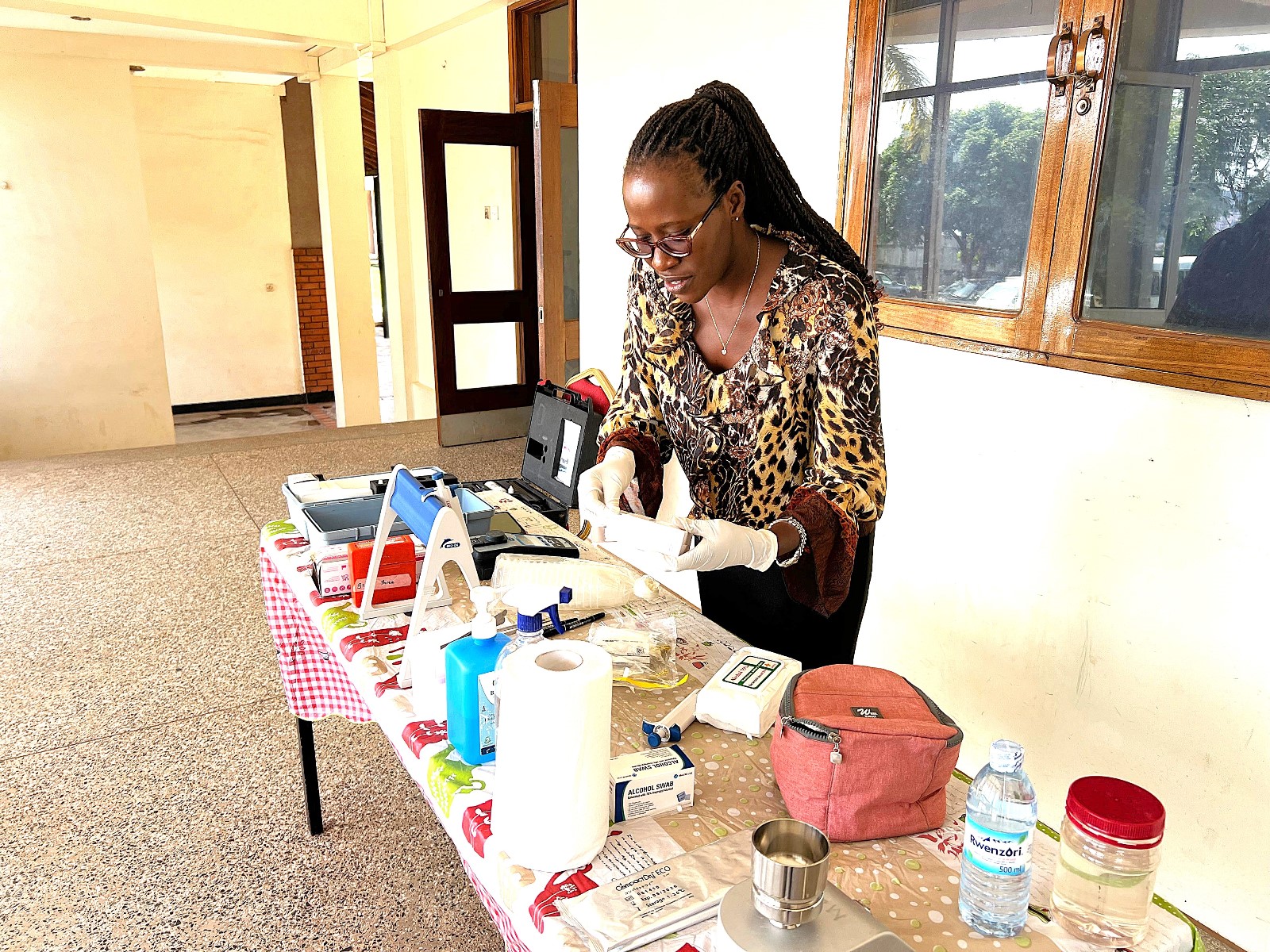
Sneha De reviewed biological and physical/chemical water treatment methods, highlighting technologies such as activated sludge, filtration, membrane bioreactors, and advanced disinfection techniques. The SophiA modular water treatment system, integrating ultrafiltration and membrane capacitive deionisation (MCDI), was introduced as a scalable solution for producing safe drinking and deionised water for medical use.
Mr. Duc Dinh Ngoc trained participants on the MCDI technology, an energy-efficient method for salt and fluoride removal suitable for low-salinity water.
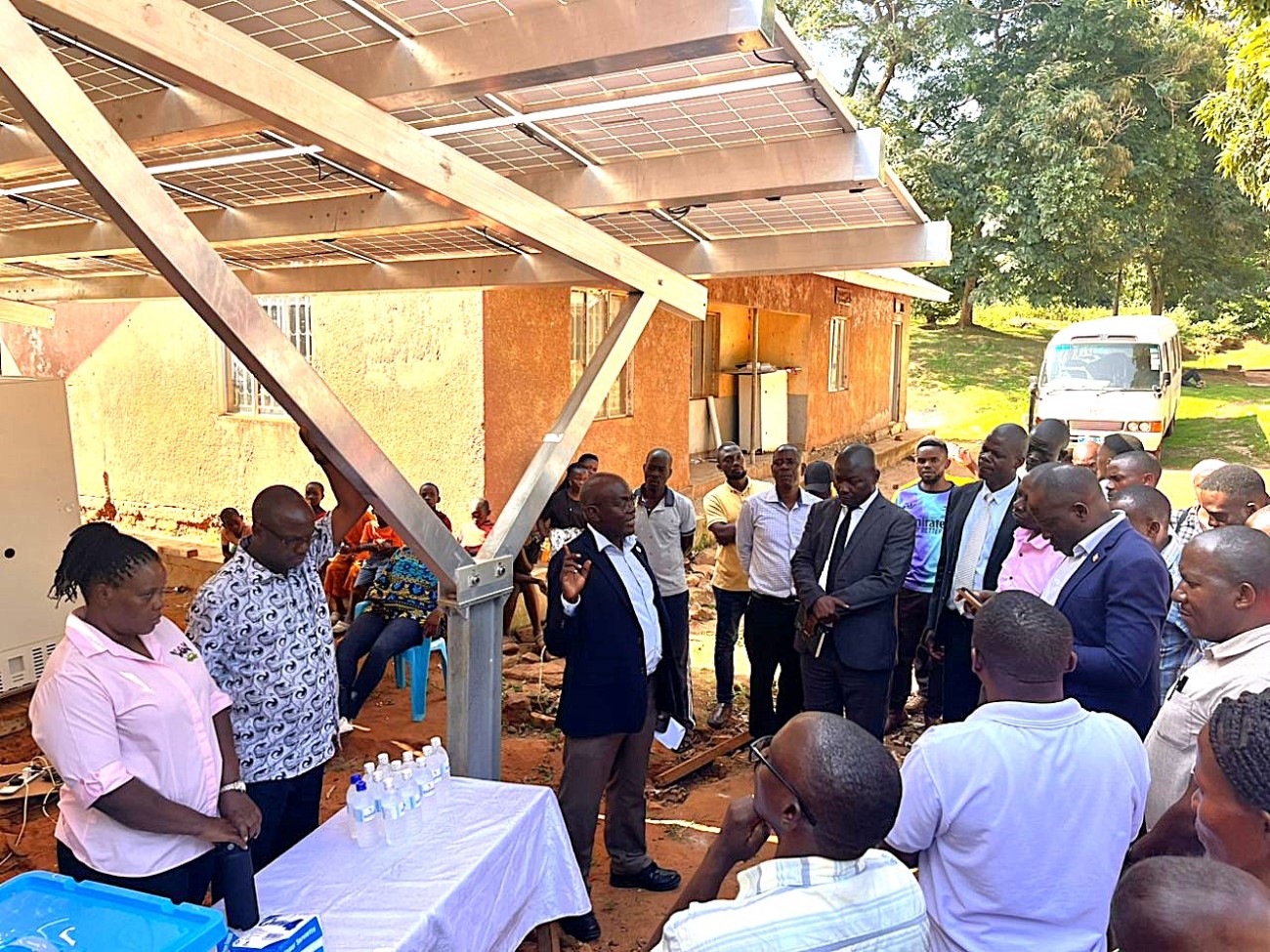
Dr. Joshua Wanyama discussed the water quality management protocols, outlining key physical, chemical, and biological water parameters and monitoring strategies, including modern IoT-based tools, to ensure water safety and public health.
The day concluded with a hands-on lab session by Dr. Prossie Nakawuka, where participants practiced water quality testing using turbidimeters, incubators, and filtration techniques.
Overall, Day Two combined theoretical insights, technology demonstrations, and practical skills, preparing participants to implement sustainable water treatment and quality management systems in healthcare environments.
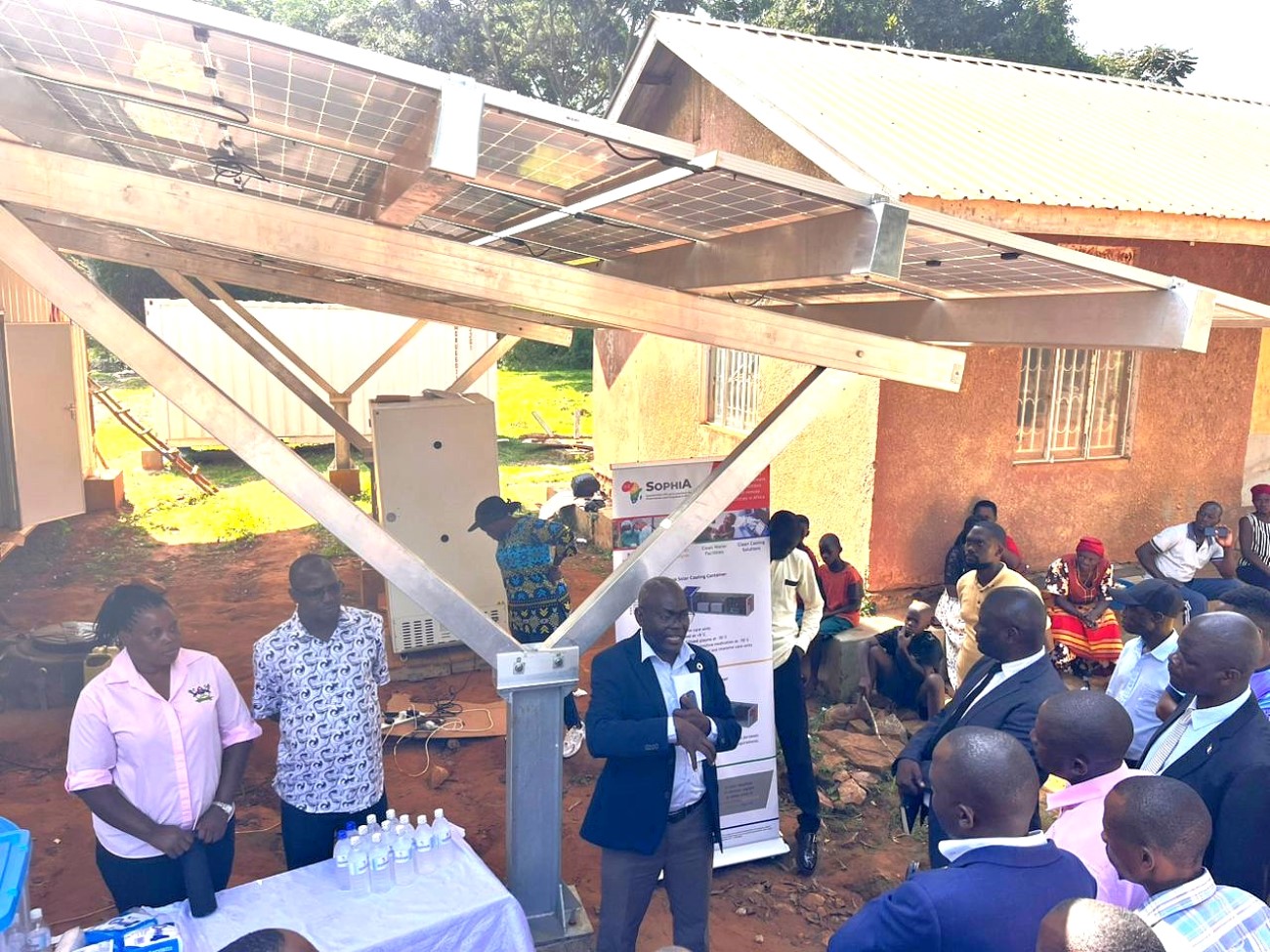
Day Three: Refrigeration and Cold Storage
The third day of the SophiA workshop focused on sustainable refrigeration and cold storage technologies tailored for healthcare in Sub-Saharan Africa. Experts discussed energy-efficient, climate-friendly cooling solutions vital for vaccine storage, medicines, and diagnostics, especially in off-grid and rural settings.
Key highlights included the introduction of solar-powered and biomass-based refrigeration systems, thermal energy storage methods, and the use of natural refrigerants like propane, ammonia, and CO₂ as environmentally safer alternatives. Presentations emphasized the critical role of refrigeration in healthcare and the urgent need to replace harmful chemicals with sustainable technologies.
Sessions covered real-world applications such as the SophiA cooling containers in Burkina Faso, safety protocols for flammable refrigerants, and the environmental and economic benefits of solar refrigeration systems assessed through life cycle analysis.
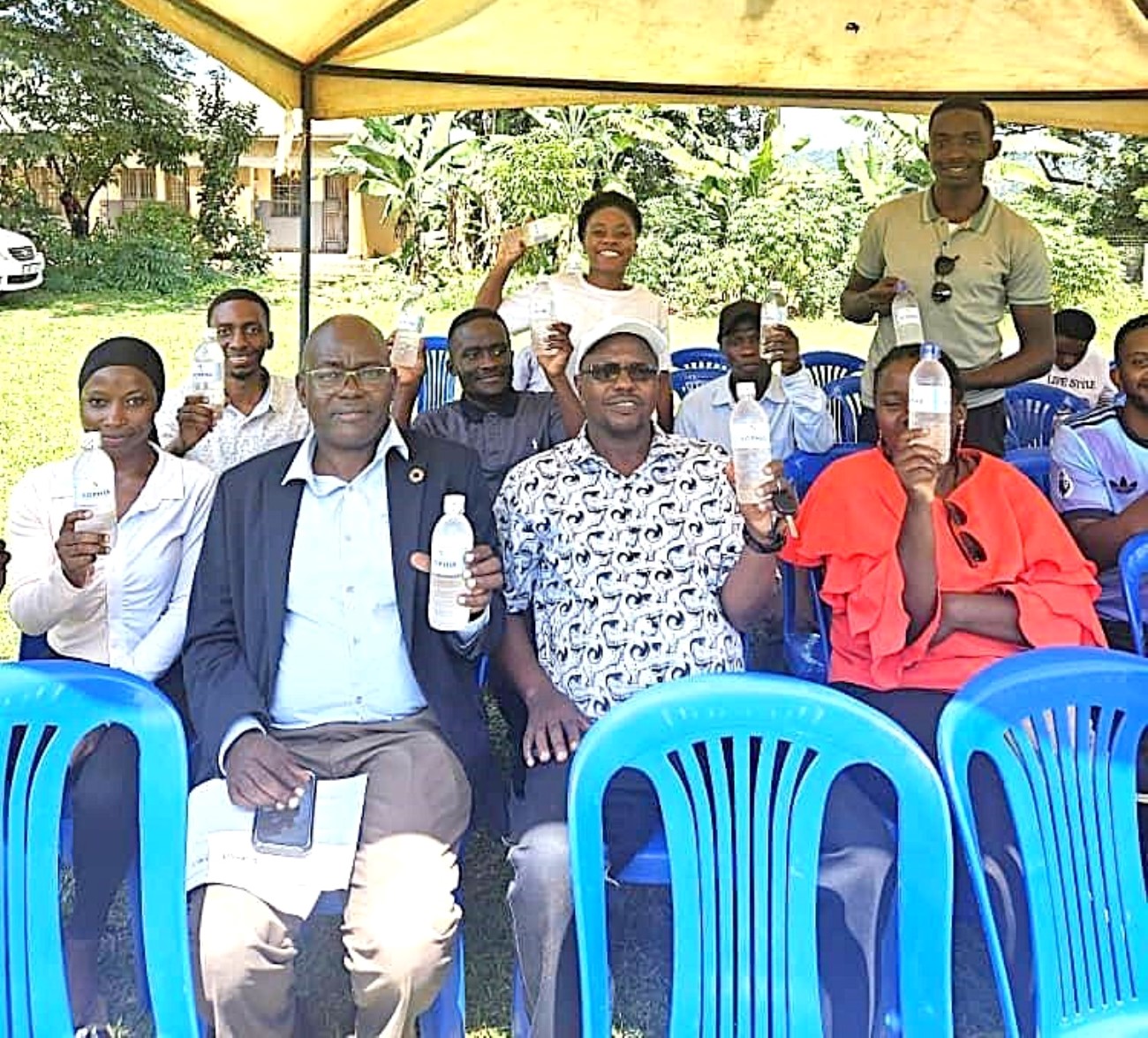
The day ended with an interactive quiz and discussion, reinforcing learning and encouraging participants to apply sustainable cooling practices in their communities.
Day Four: World Refrigeration Day & Field Visit to Buvuma Island
The fourth day of the SophiA Train the Trainers workshop was dedicated to the celebration of the World Refrigeration Day and a field excursion to Buvuma Island, providing participants with a unique opportunity to witness the SophiA system in action. The day was coordinated by Dr. Sarah Bimbona and Dr. Nicholas Kiggundu, who led the delegation to Buvuma Health Centre IV, the pilot site for the SophiA installation in Uganda.
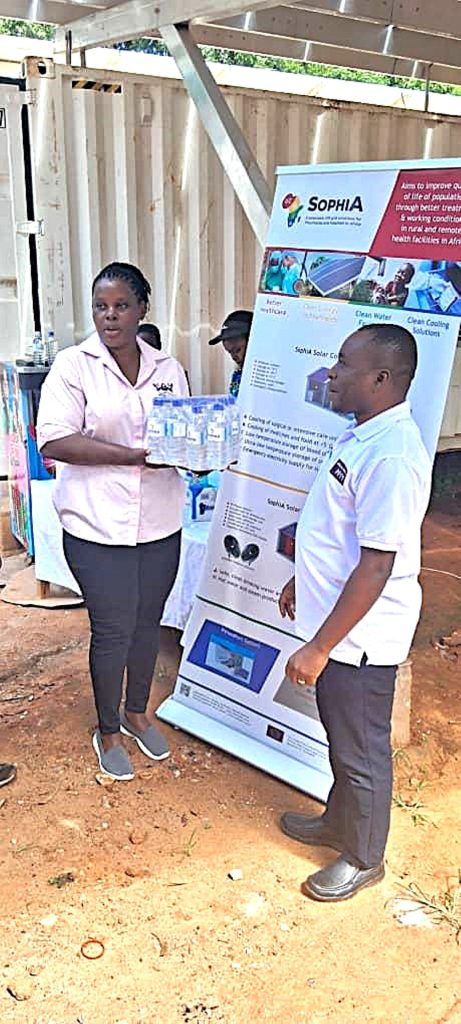
The visit served as both a practical extension of the previous day’s technical sessions and a community engagement event. Participants were able to observe the installed SophiA system, which integrates solar-powered refrigeration, water treatment and steam generation technologies designed for off-grid healthcare settings. During the visit, Dr. Kiggundu provided a detailed briefing to local stakeholders, including representatives from the Buvuma District Local Government, delegates from the Buganda Kingdom, and members of the local community. He explained how the SophiA system will enhance healthcare delivery on the island through reliable cold storage for vaccines and medicines, access to clean drinking water, and steam generated for cooking and use in the maternity wards.
As part of the long-term sustainability plan for the SophiA system, the launch of SophiA Water was announced, an entrepreneurial initiative designed to generate revenue locally for the operation and maintenance of the system.
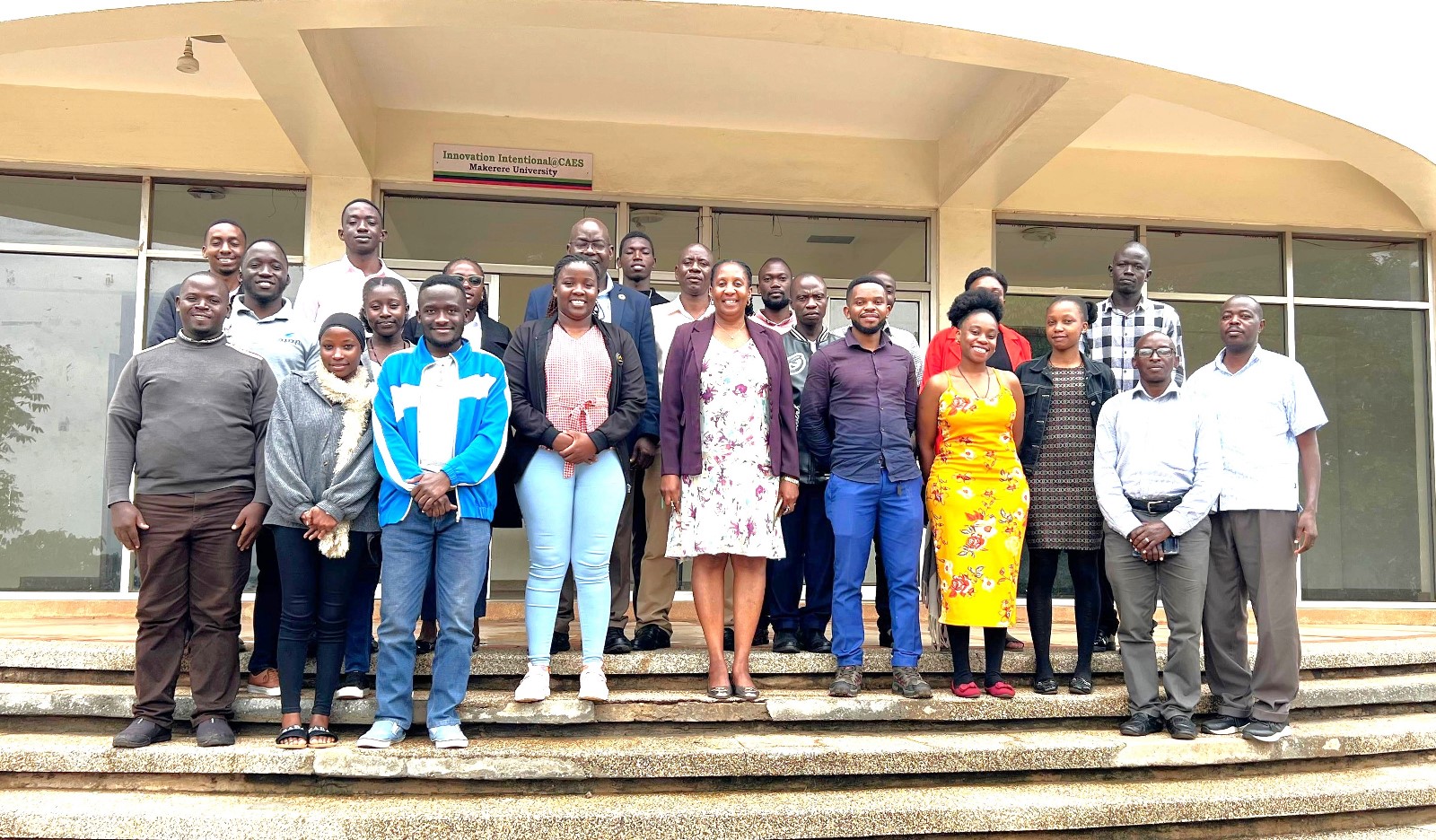
The field trip ended with a certificate awarding ceremony in appreciation of the participants’ dedication and active engagement throughout the training programme.
Agriculture & Environment
APRC Trains Graduate Students & Stakeholders in the Use of the African Agriculture Adaptation Atlas
Published
2 weeks agoon
July 3, 2025
The Agricultural Policy Research Centre (APRC), housed within the College of Agricultural and Environmental Sciences (CAES) at Makerere University, continues to play a pivotal role in shaping Uganda’s agricultural future through evidence-based policymaking. With a mission to ensure that agricultural policies are grounded in empirical research and data, APRC is actively investing in capacity-building initiatives that empower researchers, policymakers, and development actors.
In a significant stride toward building climate resilience in African agriculture, APRC recently organized a two-day intensive training workshop focused on the African Agriculture Adaptation Atlas (AAAA) – a state-of-the-art, web-based decision-support platform that facilitates the integration of climate data into agricultural planning and policy.

The workshop, held on Wednesday 25th and Thursday 26th June 2025 at the School of Agricultural Sciences, Makerere University, targeted two key groups: graduate students on the first day, and university faculty, government officials, and development practitioners on the second. This structure ensured tailored learning experiences for both emerging and seasoned professionals, helping to bridge the gap between academic research and real-world policy implementation.
The African Agriculture Adaptation Atlas (AAAA) is designed to provide dynamic, data-rich visualizations that support informed decision-making in agriculture and food systems across the continent. Through interactive maps and analytical tools, users can explore projected climate impacts, evaluate risks, and identify localized, climate-smart adaptation strategies.

Throughout the sessions, participants received hands-on training in a broad range of AAAA functionalities, including:
- Leveraging the Atlas for research and policy communication: Enhancing the ability of scientists and policy actors to translate complex climate data into actionable insights;
- Assessing projected climate impacts and associated agricultural risks: Essential for forward-looking planning and risk mitigation;
- Identifying climate-smart investment options, with a particular focus on the livestock sector, which is especially vulnerable to climate shocks;
- Analysing gendered vulnerabilities: Examining how climate change disproportionately affects women in agricultural communities;
- Understanding the implications of heat stress on agricultural productivity: Supporting targeted interventions to protect producers and their livelihoods;
- Estimating the economic returns of adaptation strategies: Aiding in prioritizing investments and allocating limited resources effectively.

Prof. Bernard Bashaasha, the APRC Coordinator, emphasized the importance of the training in advancing Africa’s adaptation agenda. “As climate change continues to threaten food security and disrupt livelihoods across the continent, tools like the AAAA, and the skills to use them effectively are essential. They empower decision-makers to craft policies that are adaptive, inclusive, and rooted in science,” he noted.
The workshop was coordinated by Dr. Florence Rwiza, Lecturer in the Department of Agribusiness and Natural Resource Economics at CAES.
More photos from the Training






Trending
-

 General2 weeks ago
General2 weeks agoRe-advert: Admission to Undergraduate Programmes 2025/2026
-

 General1 week ago
General1 week agoRe-Advert for Applications for Diploma and Certificate Training
-

 General5 days ago
General5 days agoMakerere University Fees Waiver for 40 First Year Female Students 2025/2026
-

 General2 weeks ago
General2 weeks agoPress Statement on Ranking
-

 Health1 week ago
Health1 week agoCall for Applications: Responsible Conduct of Research (RCR) Training Course
